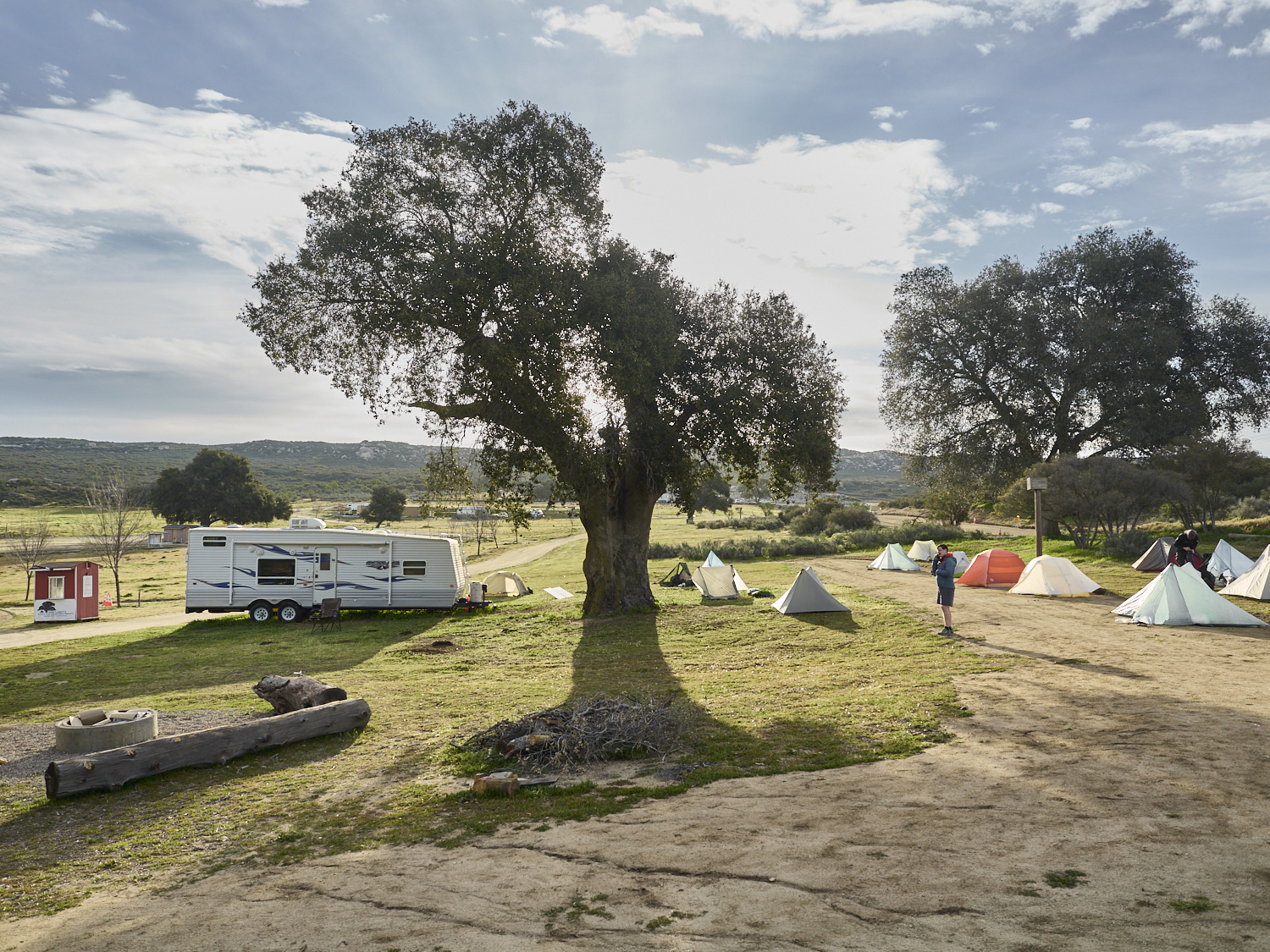
Kilometer 1, Camp Lockett in the morning of April 7 2023. Many hikers are spending the last night before their thru-hike at Camp Lockett. Camp Lockett, a former military post of the US Army is only some hundred meters north of the California-Mexico border.
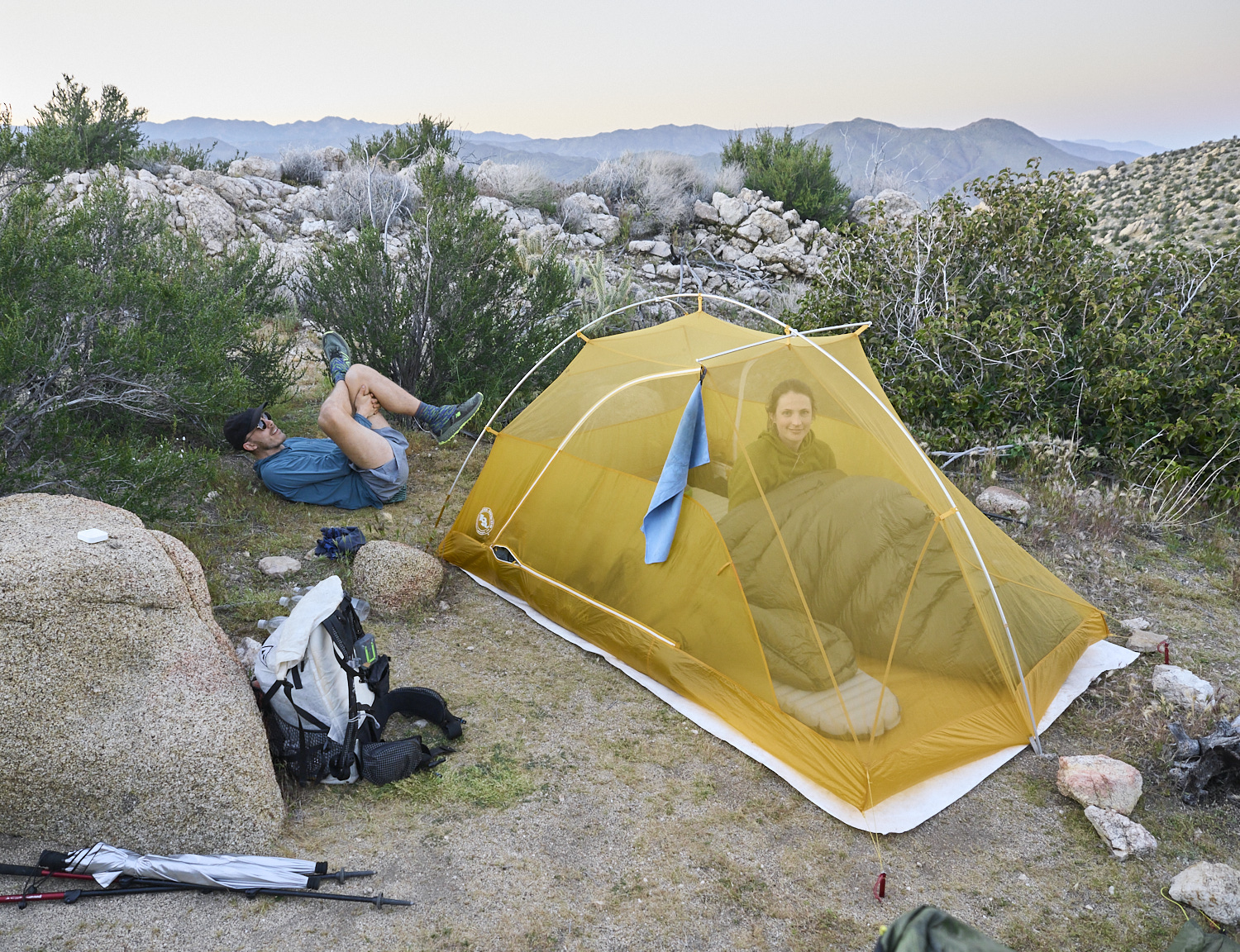
Kilometer 114, evening near Scissors Crossing, Highway 78 in San Felipe Valley. A hiker is already in her tent, while her partner is still doing some stretching exercises.
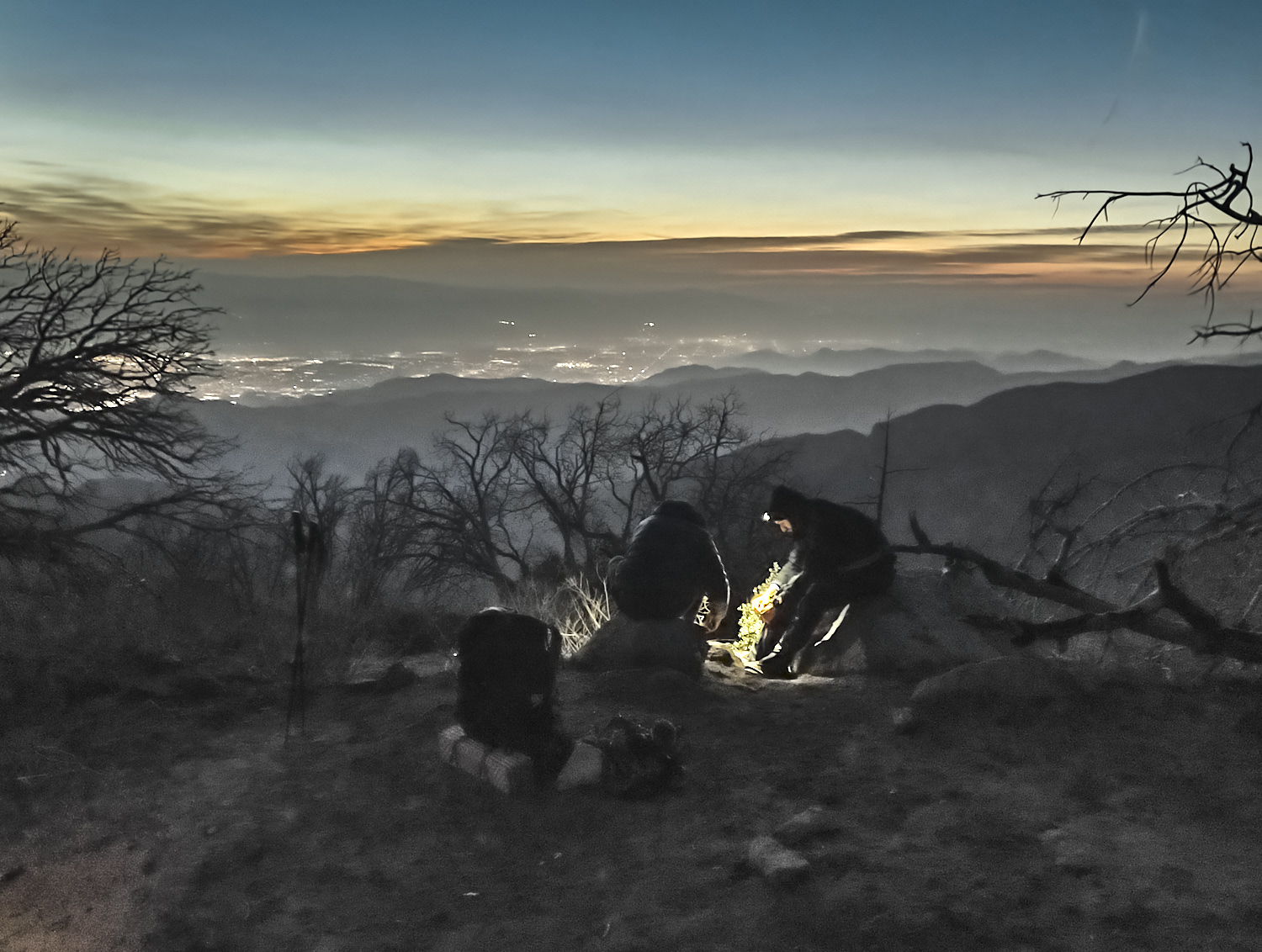
Kilometer 271, early start at dawn on San Jacinto while the city lights of Palm Springs and Palm Desert are visible in the background. Two hikers get up early for the notorious route over Spitler peak and Apache peak. This route is extremely dangerous because of steep terrain. Only a few days earlier this section was still officially closed due to dangerous conditions.
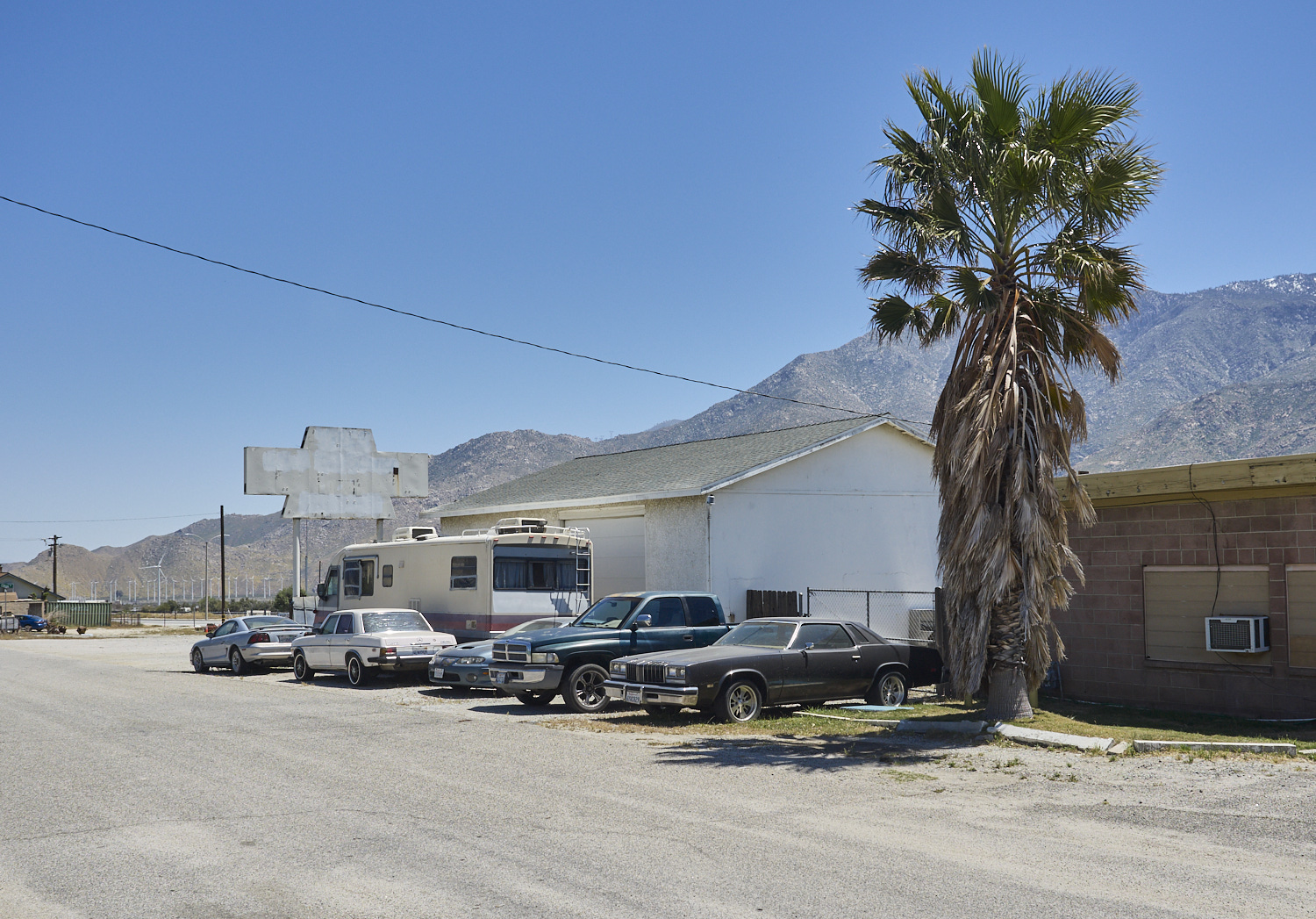
Kilometer 337, California landscape near Cabazon next to the Interstate 10.
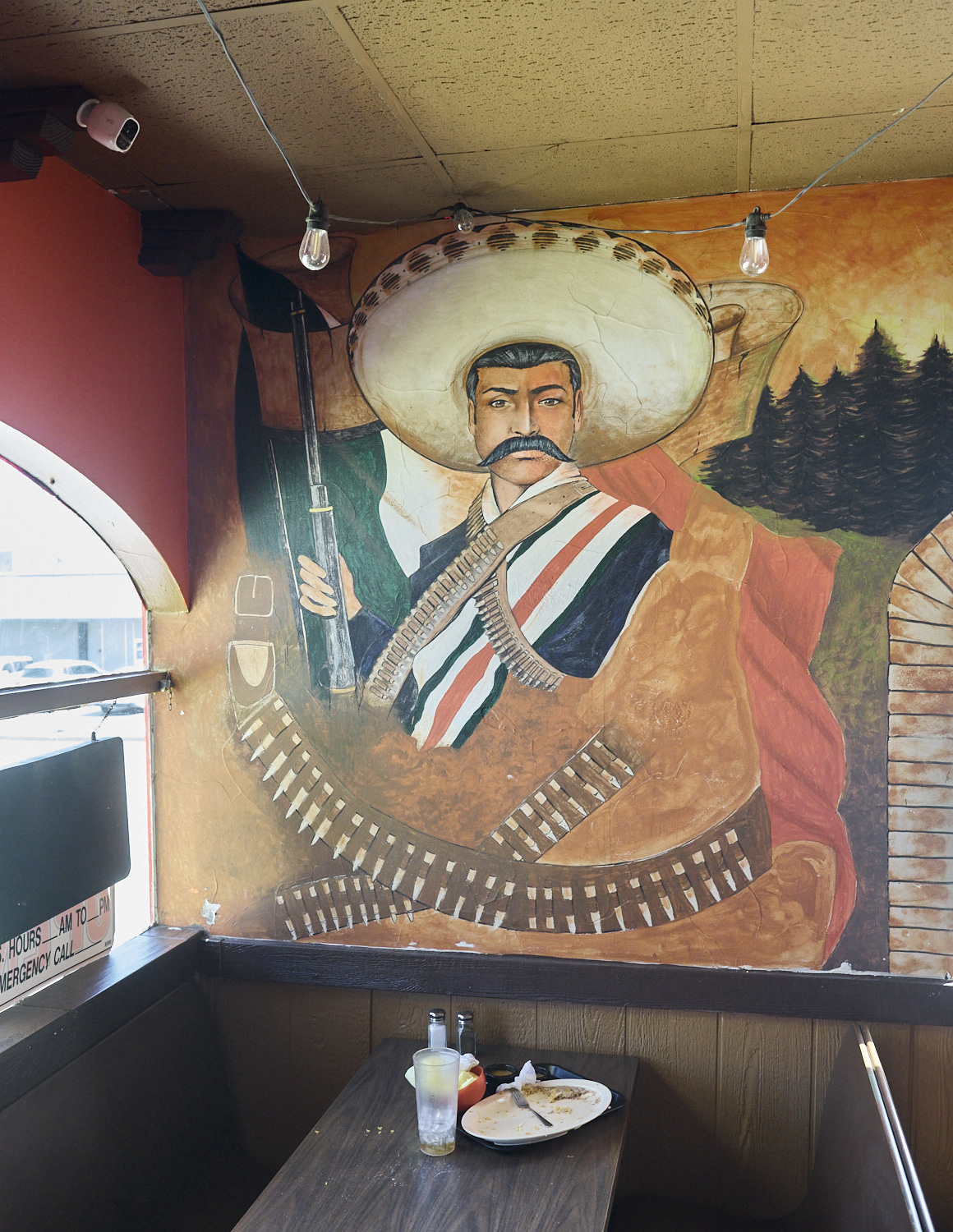
Kilometer 337, inside a Mexican restaurant near Cabazon.
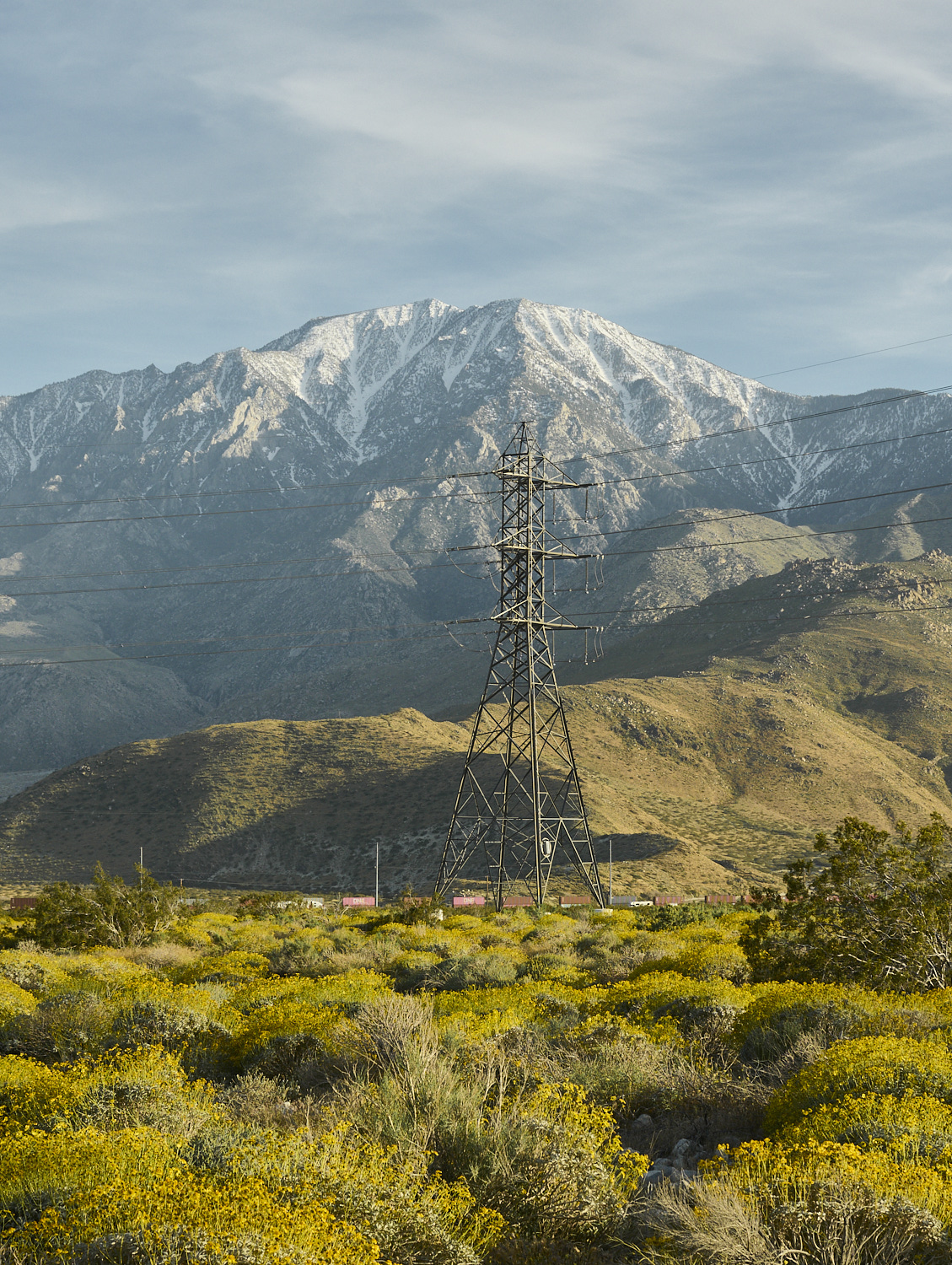
Kilometer 340, Cottonwood Canyon Trailhead, Mount San Jacinto. The high precipitations in California during the winter 2022/23 resulted in a 40-year snow record and a „superbloom“ in spring. The normally dry landscape of southern California was in many areas covered with colorful flowers.
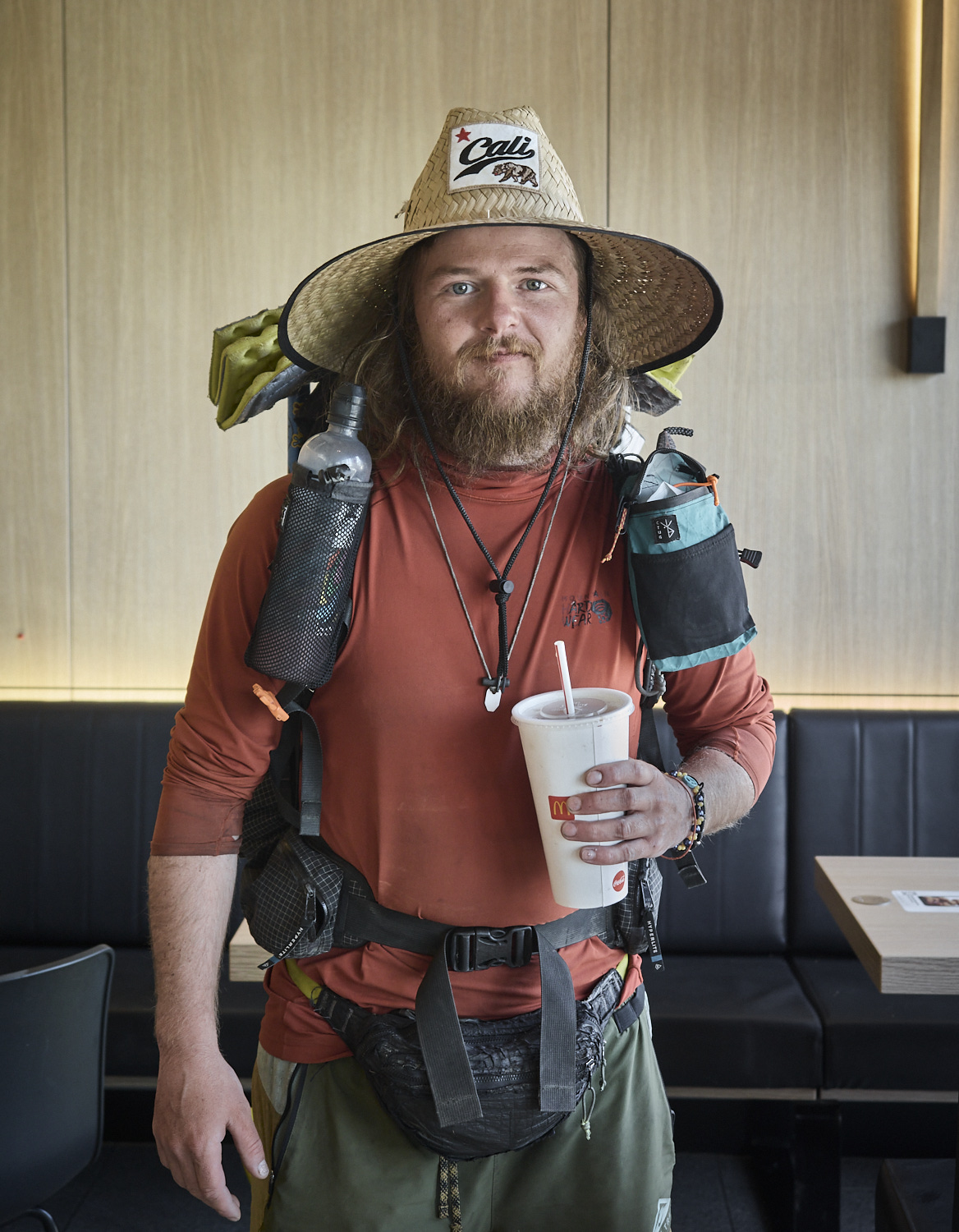
Kilometer 550, a hiker at McDonald’s at Cajon pass next to the Interstate 15. The McDonald’s at Cajon pass is situated only some hundred meters from the PCT and is therefore an important milestone for PCT hikers.
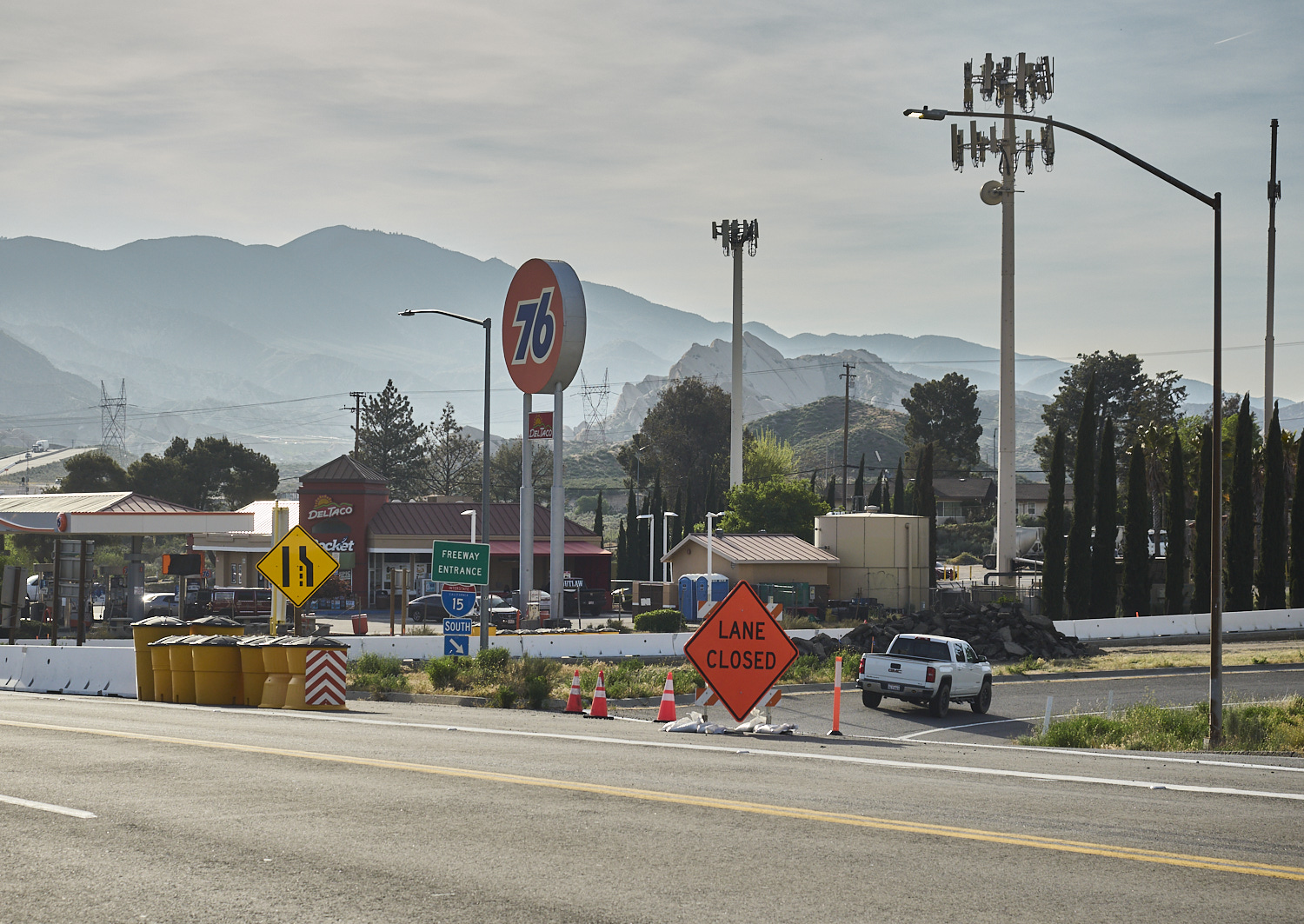
Kilometer 551, American highway scenery at Cajon pass.
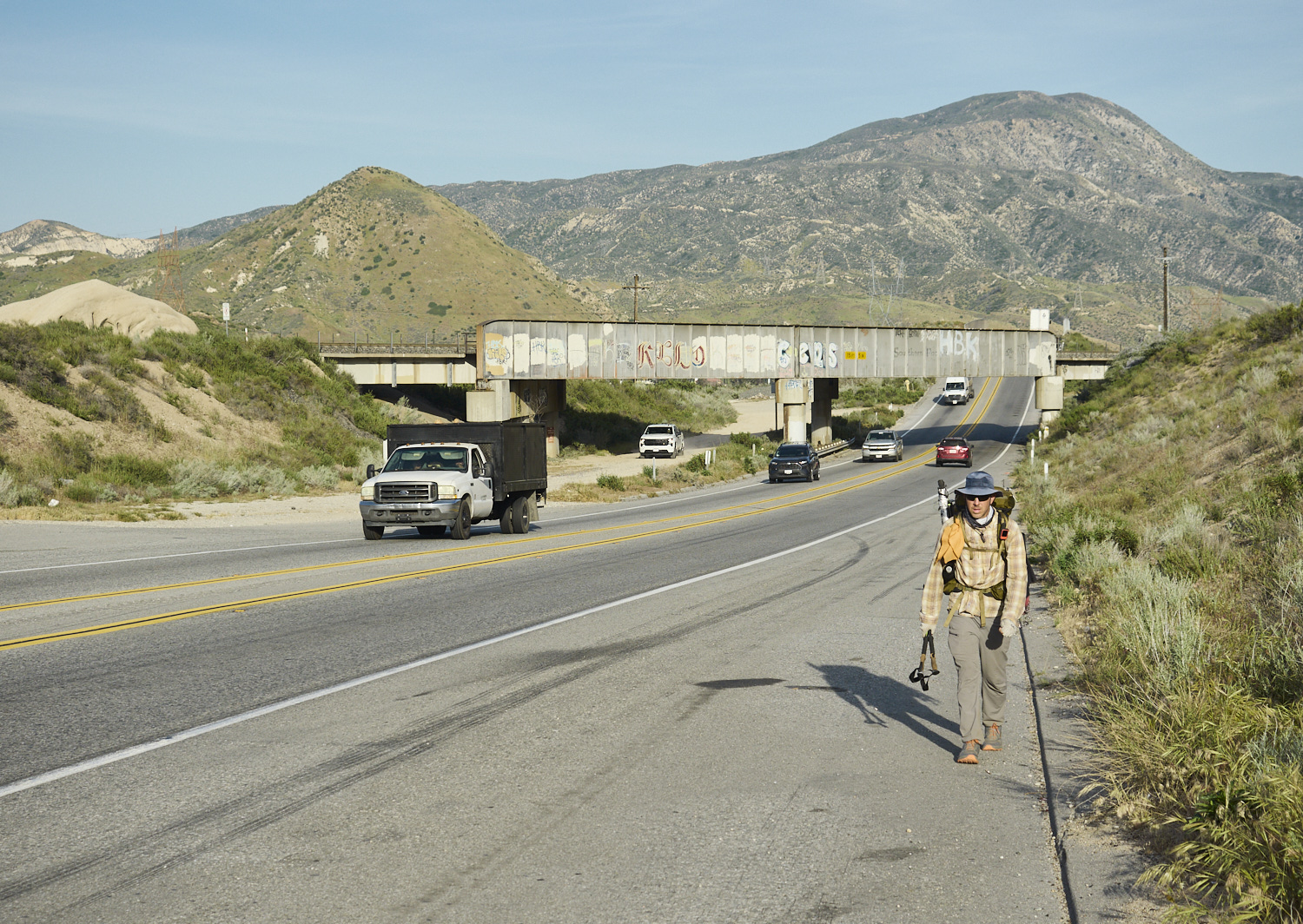
Jeff is taking a detour on an highway near Cajon pass. An official trail closure resulting from a wildfire west of Cajon pass in the end of April forced hikers to search for alternate routes.
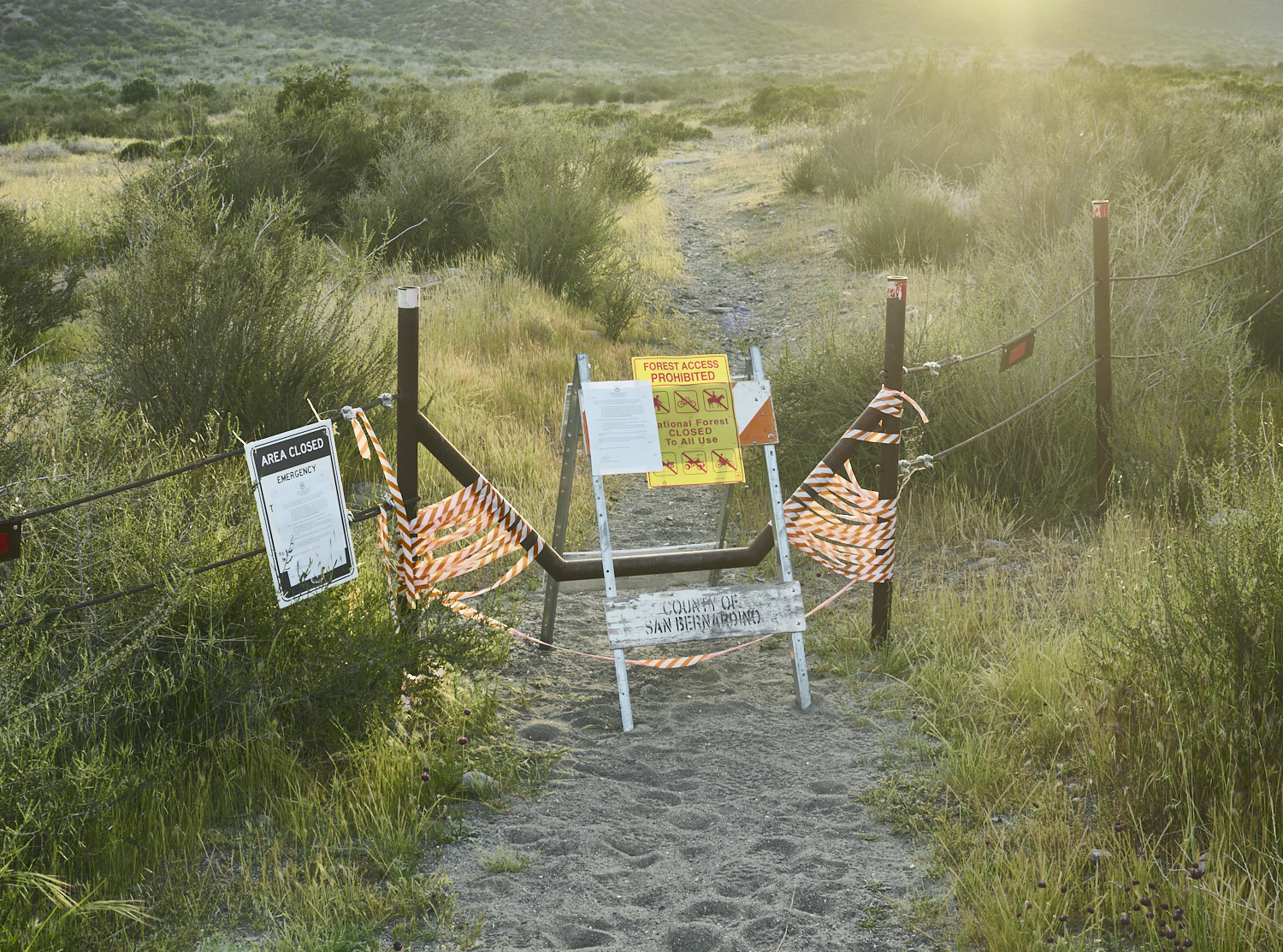
Kilometer 559, barrier tape and signs are marking the western end of the Cajon pass fire closure.
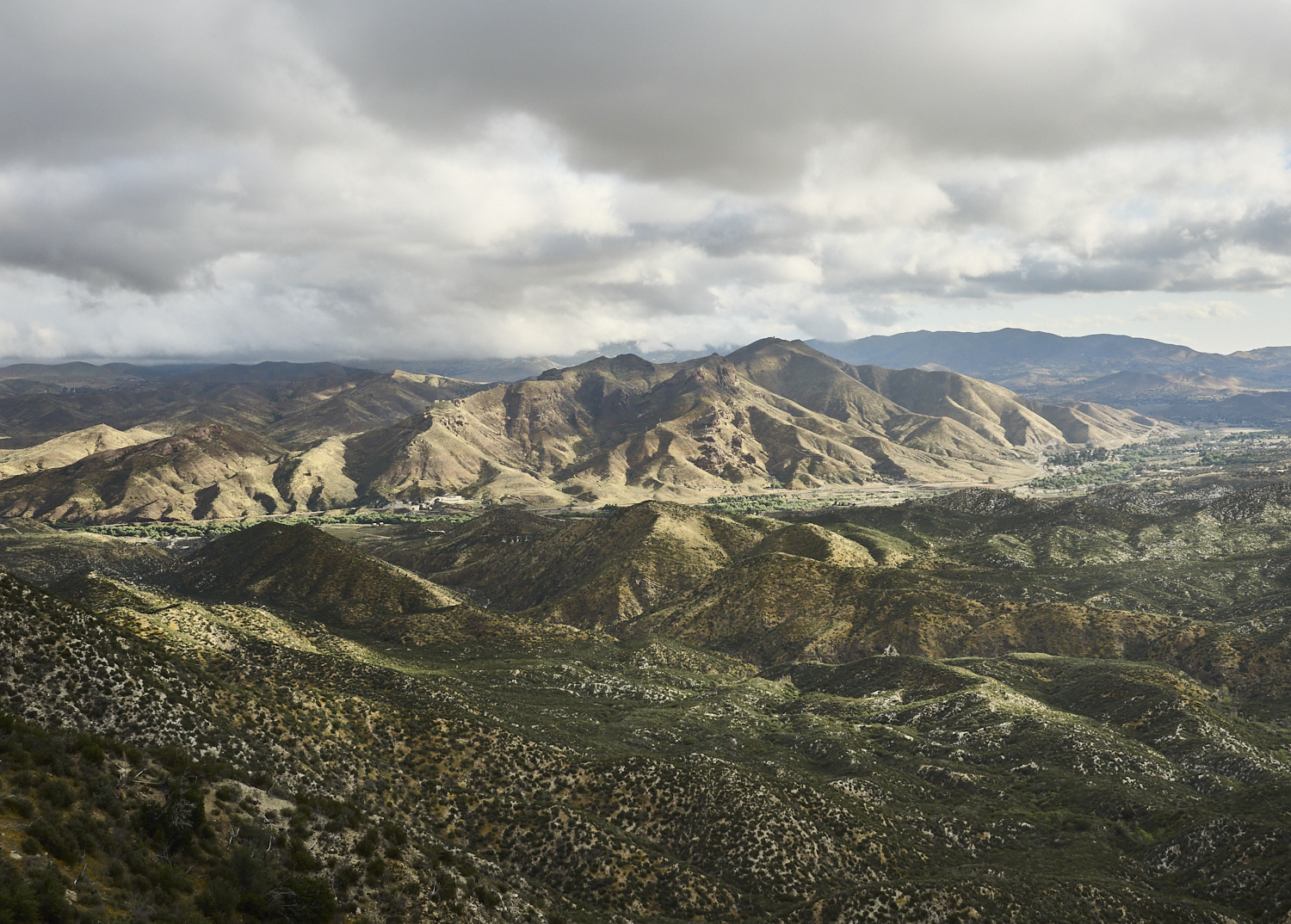
Kilometer 706, thick clouds over the San Gabriel mountains.
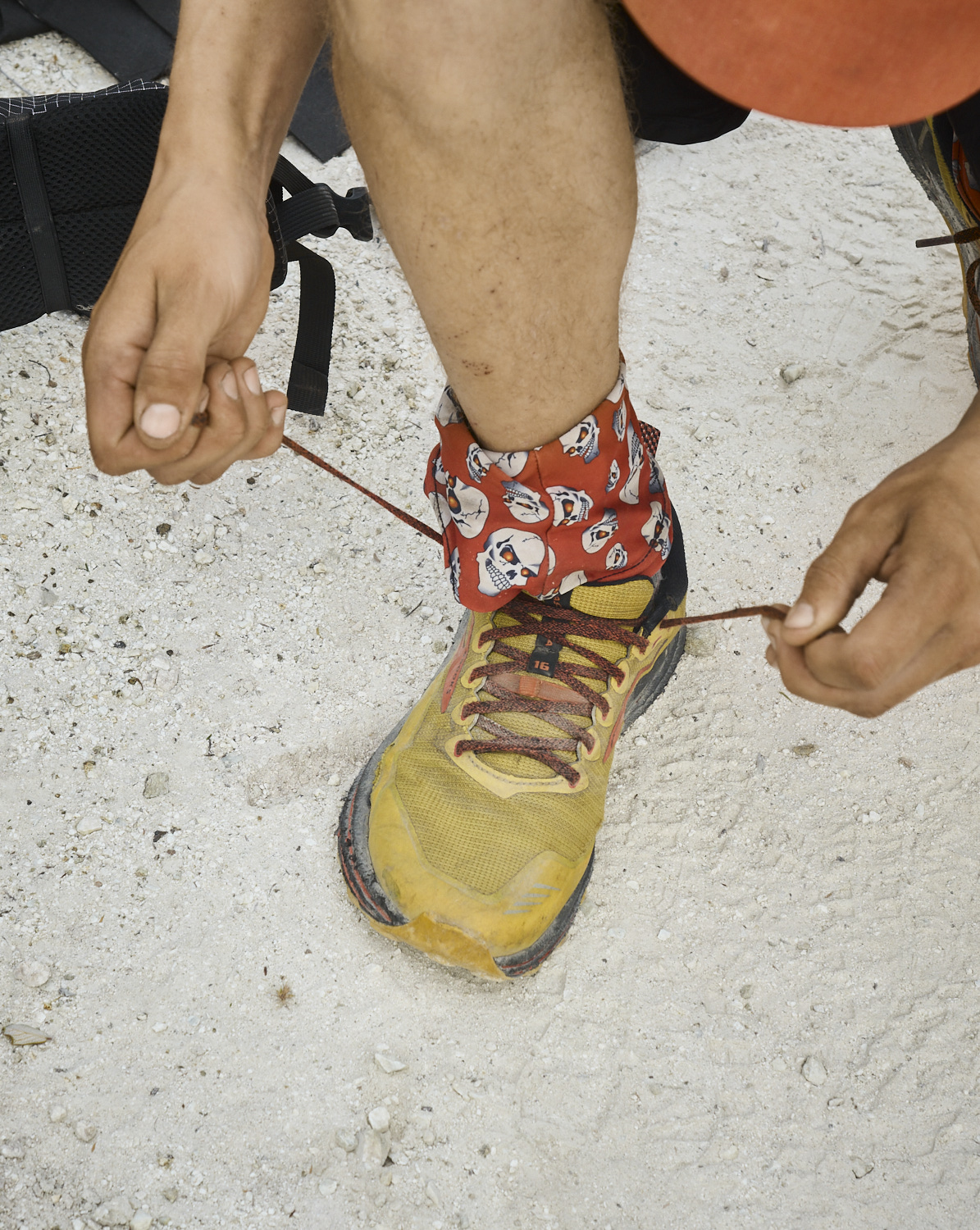
Bushwack is tying his shoelaces.
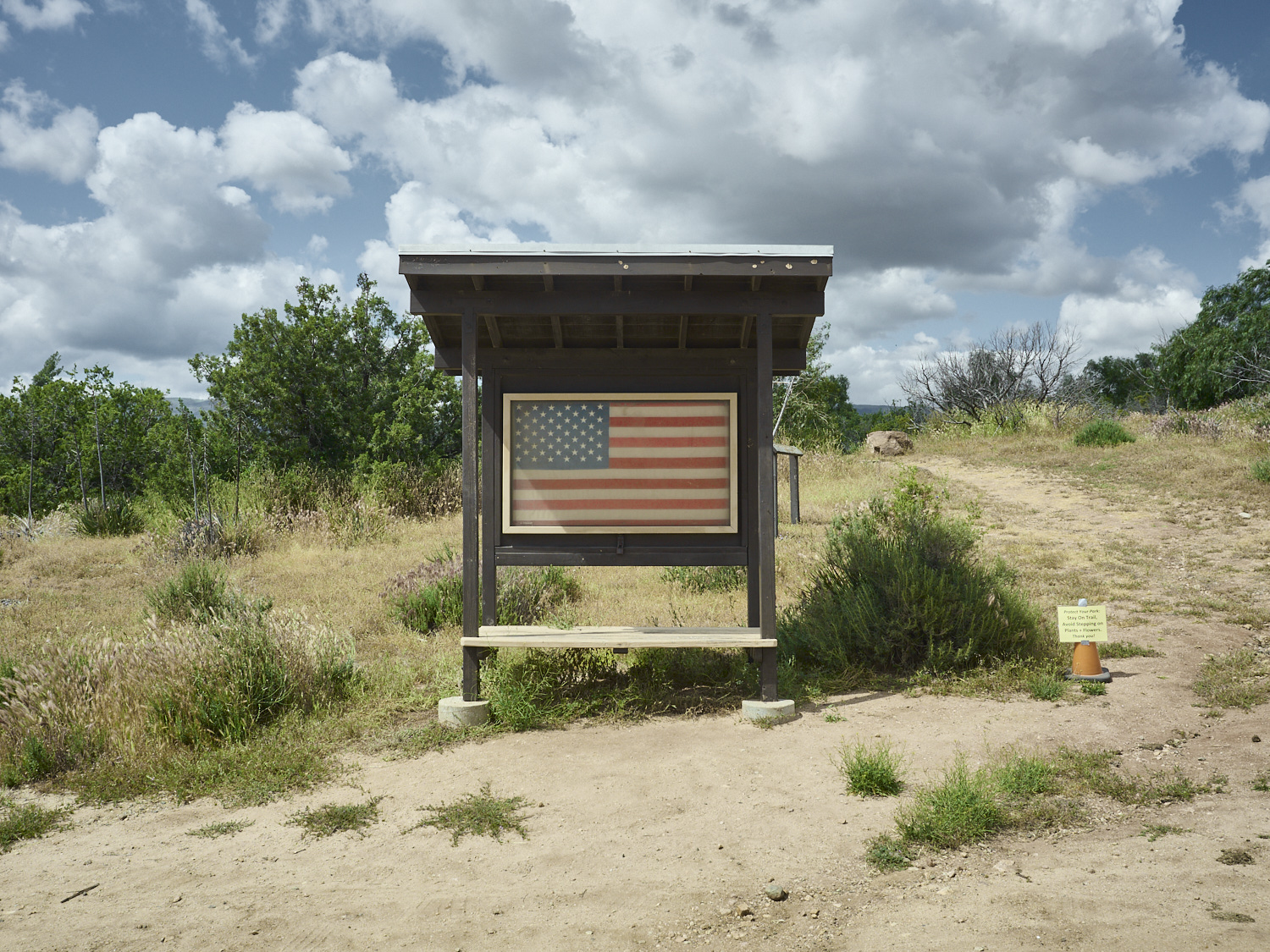
Kilometer 729, America.
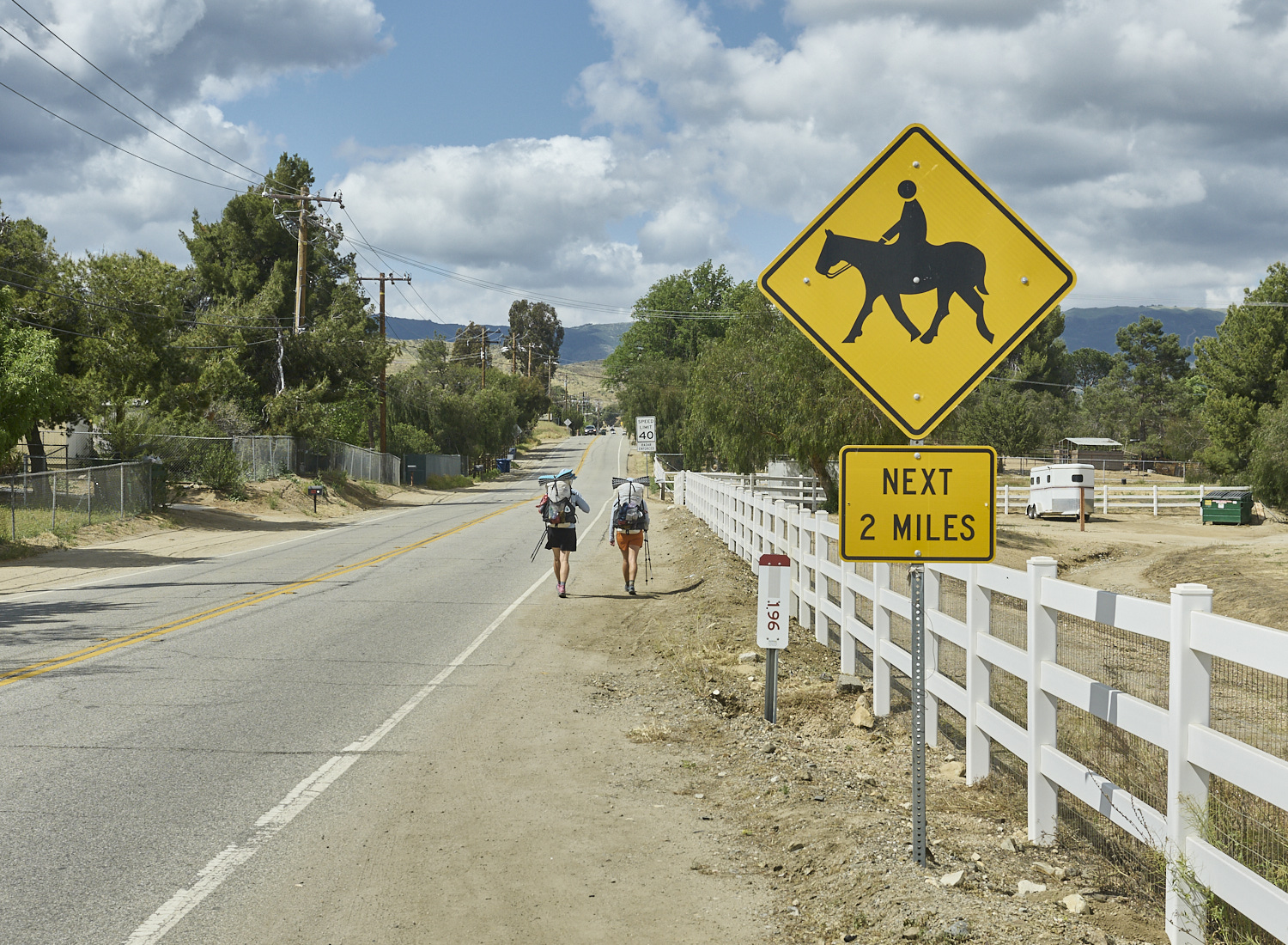
Kilometer 731, two hikers are hiking in Agua Dulce on an Highway, which is part of the PCT for some miles.
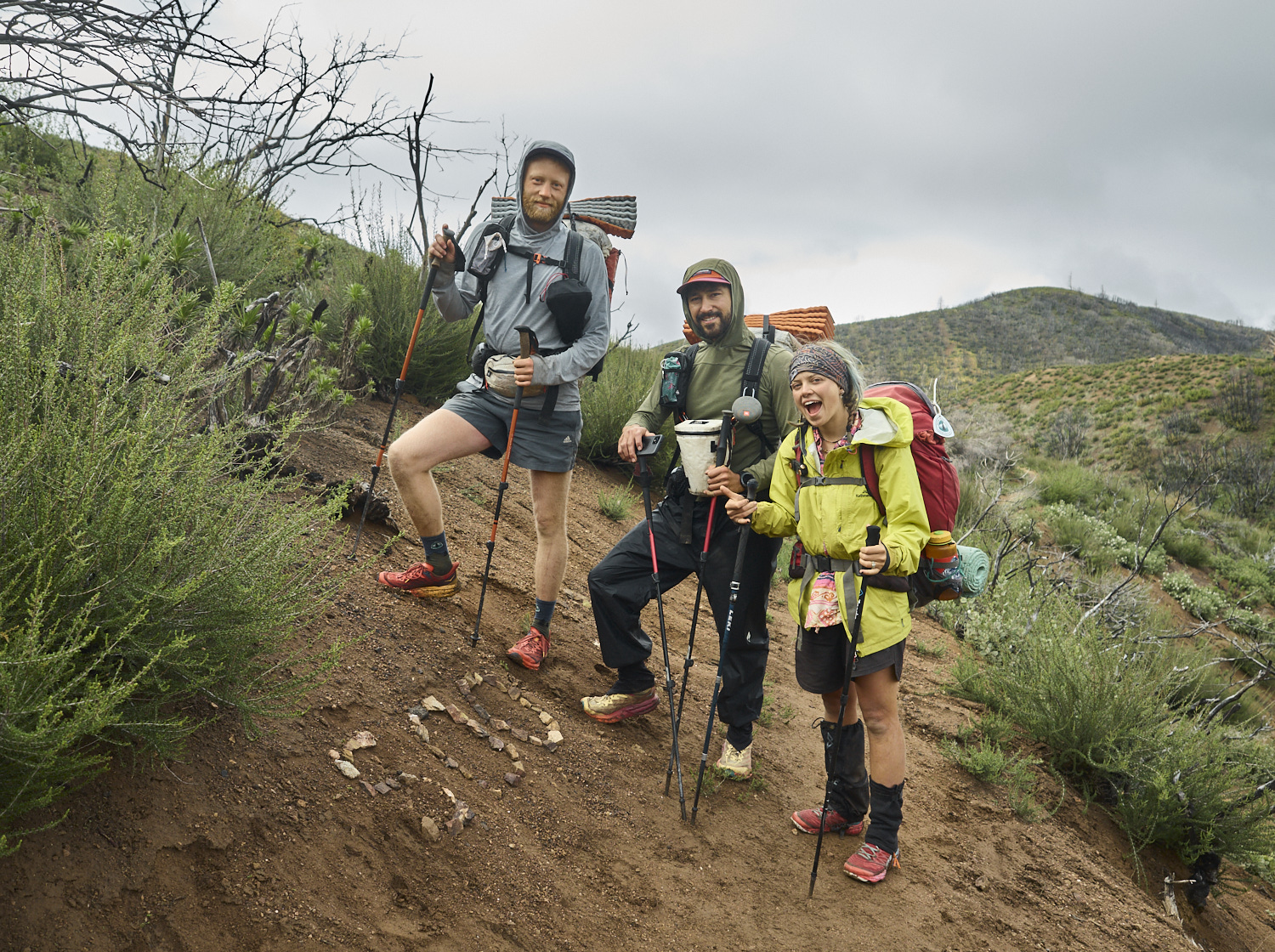
Kilometer 804, three hikers are celebrating the arrival at the 500 mile marker.
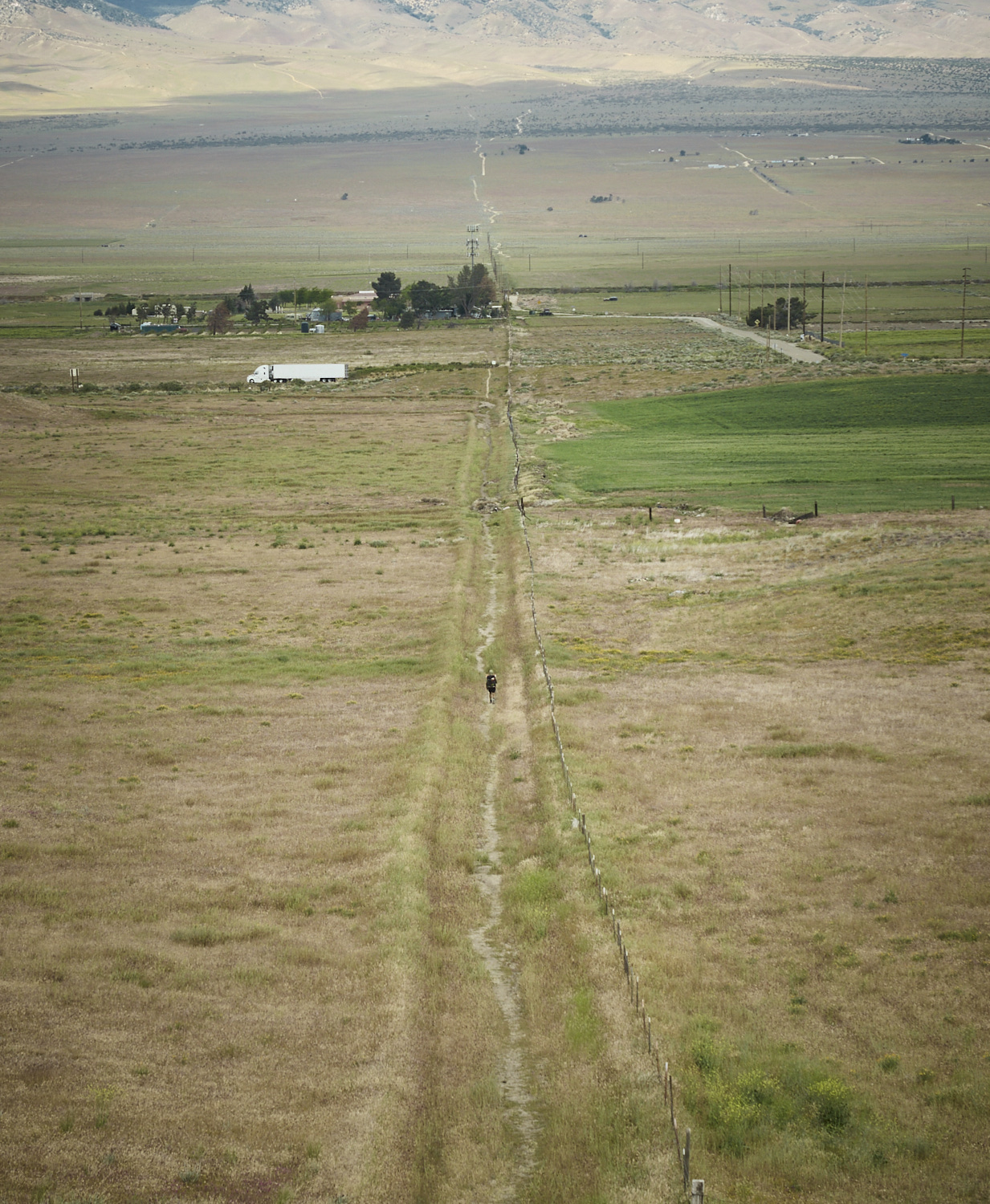
Kilometer 832, a hiker in Antelope Valley, the most western part of the Mojave Desert.
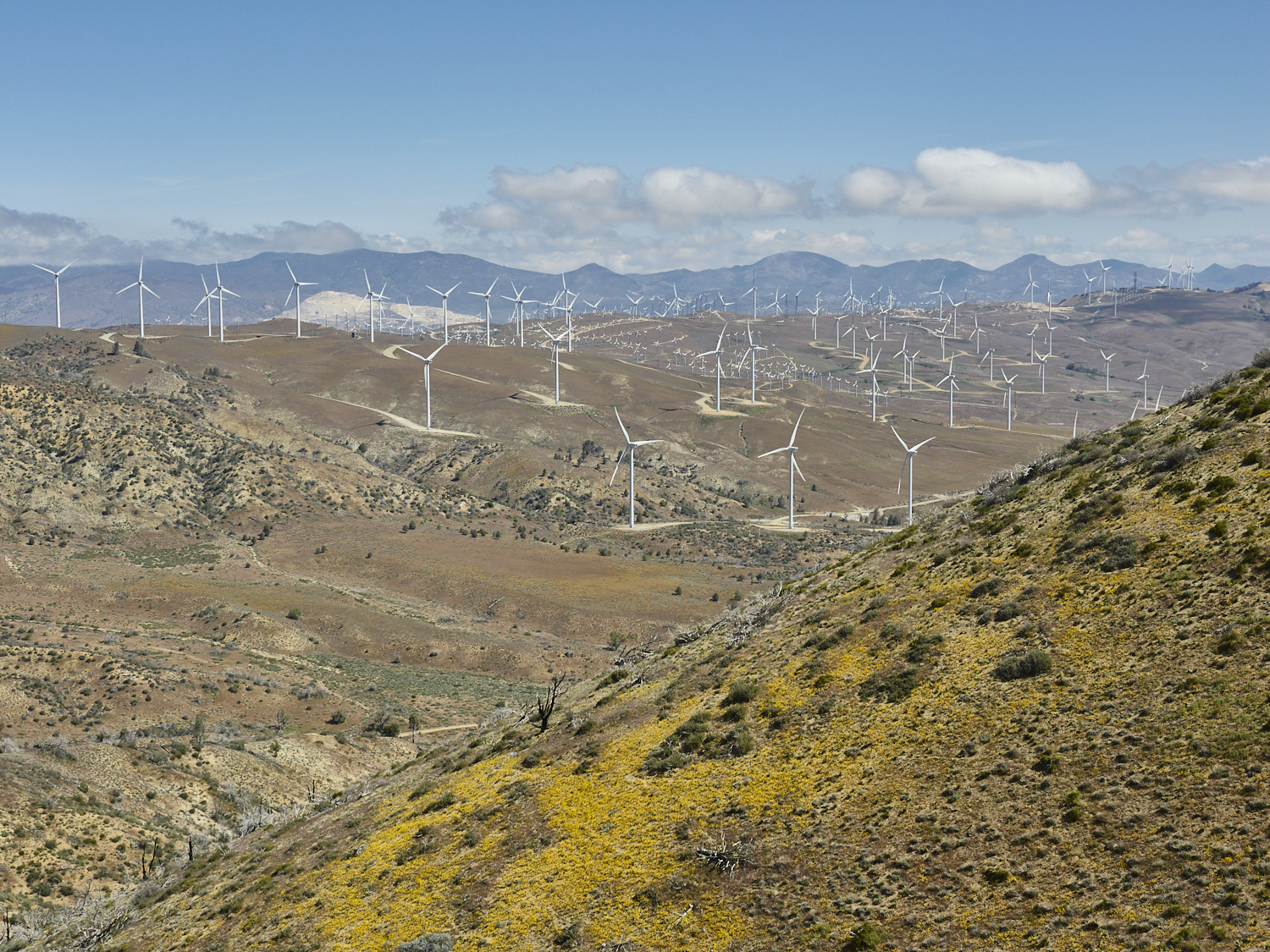
Kilometer 890, a wind farm south of Tehachapi.
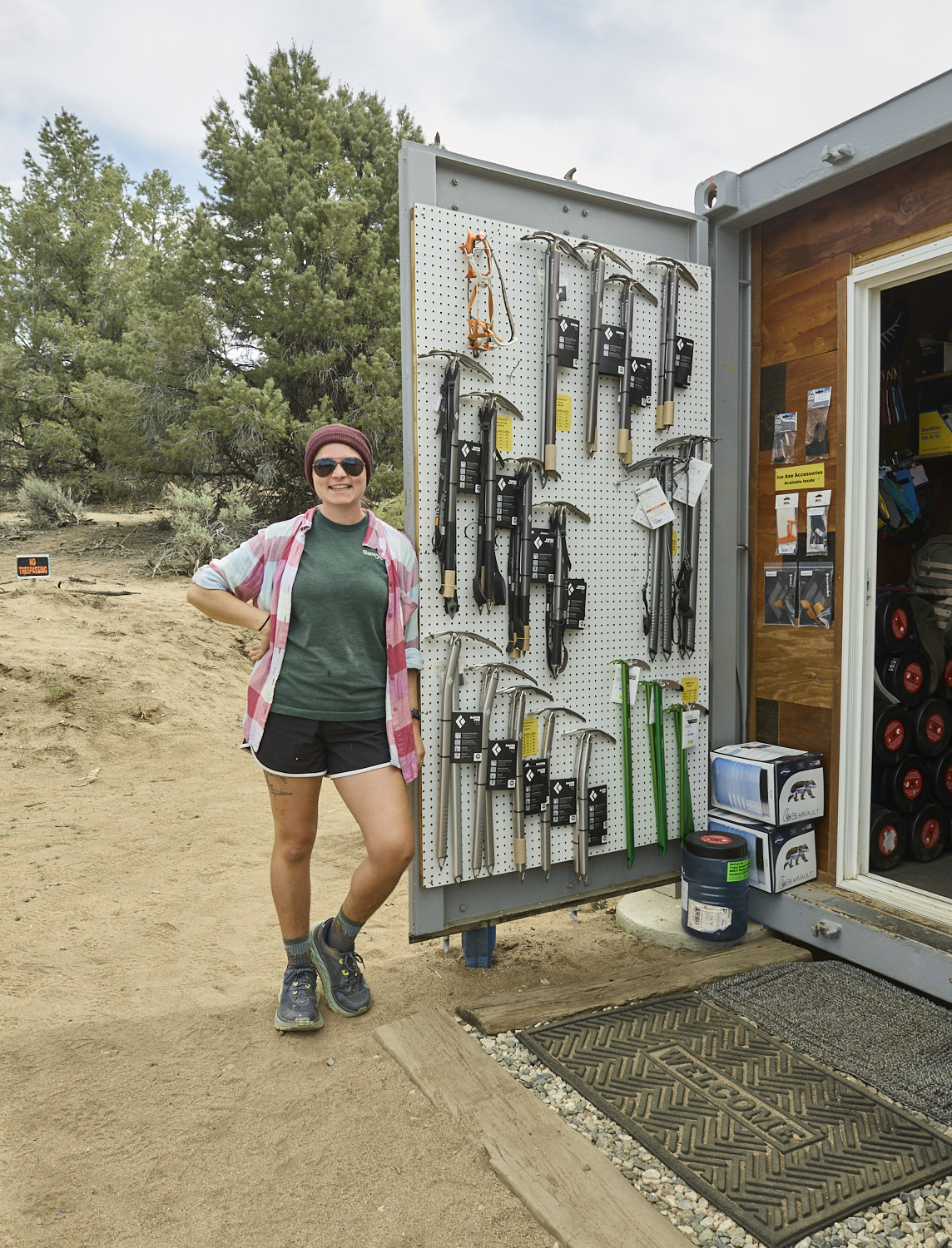
Kilometer 1132, „Amazon" at the store „Triple Crown Outfitter" in Kennedy Meadows. Kennedy Meadows is known as the gateway to the High Sierra, where hikers are commonly buying food and additional alpine equipment.
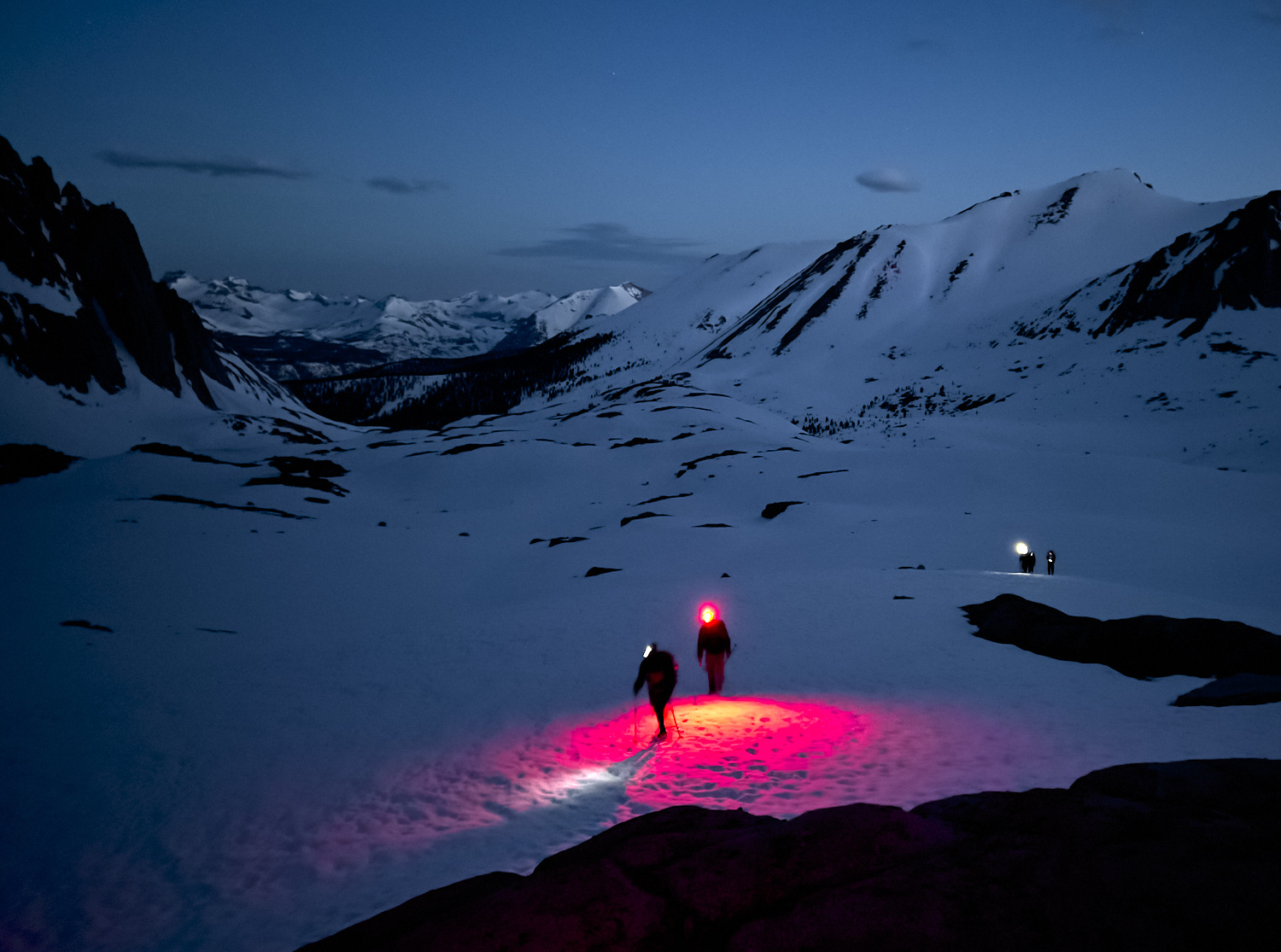
Near PCT kilometer 1235, early morning climb on mount Whitney. Mount Whitney (4421 meters height) is the highest mountain of California and of the contiguous United States. Situated only few miles east from the PCT many hikers do the climb during an extra day.
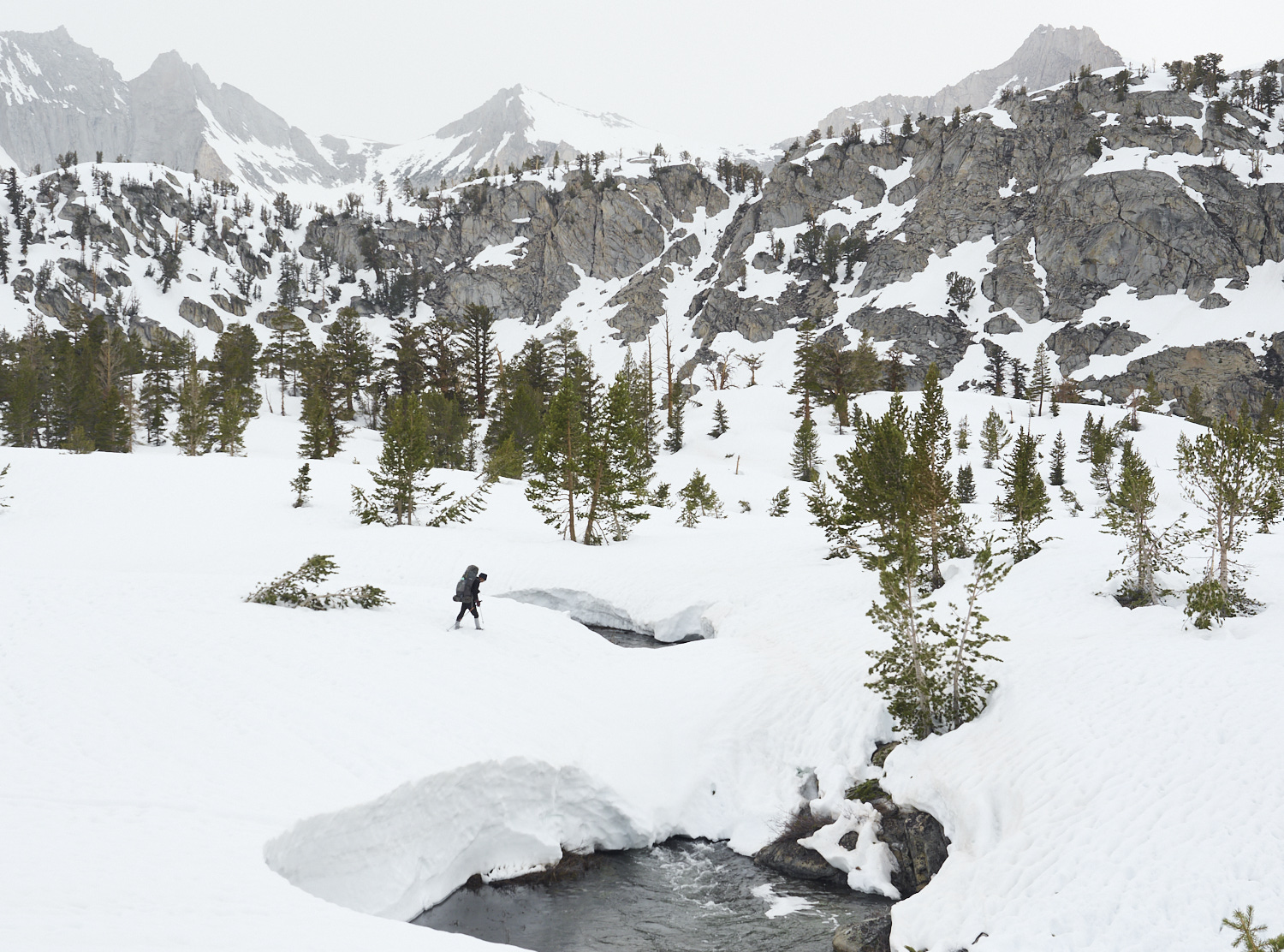
~Kilometer 1280, Oujin crosses a river over a snow bridge. The Sierra Nevada experienced the snowiest winter since 40 years. Some areas even experienced a new all-time record in snow levels.
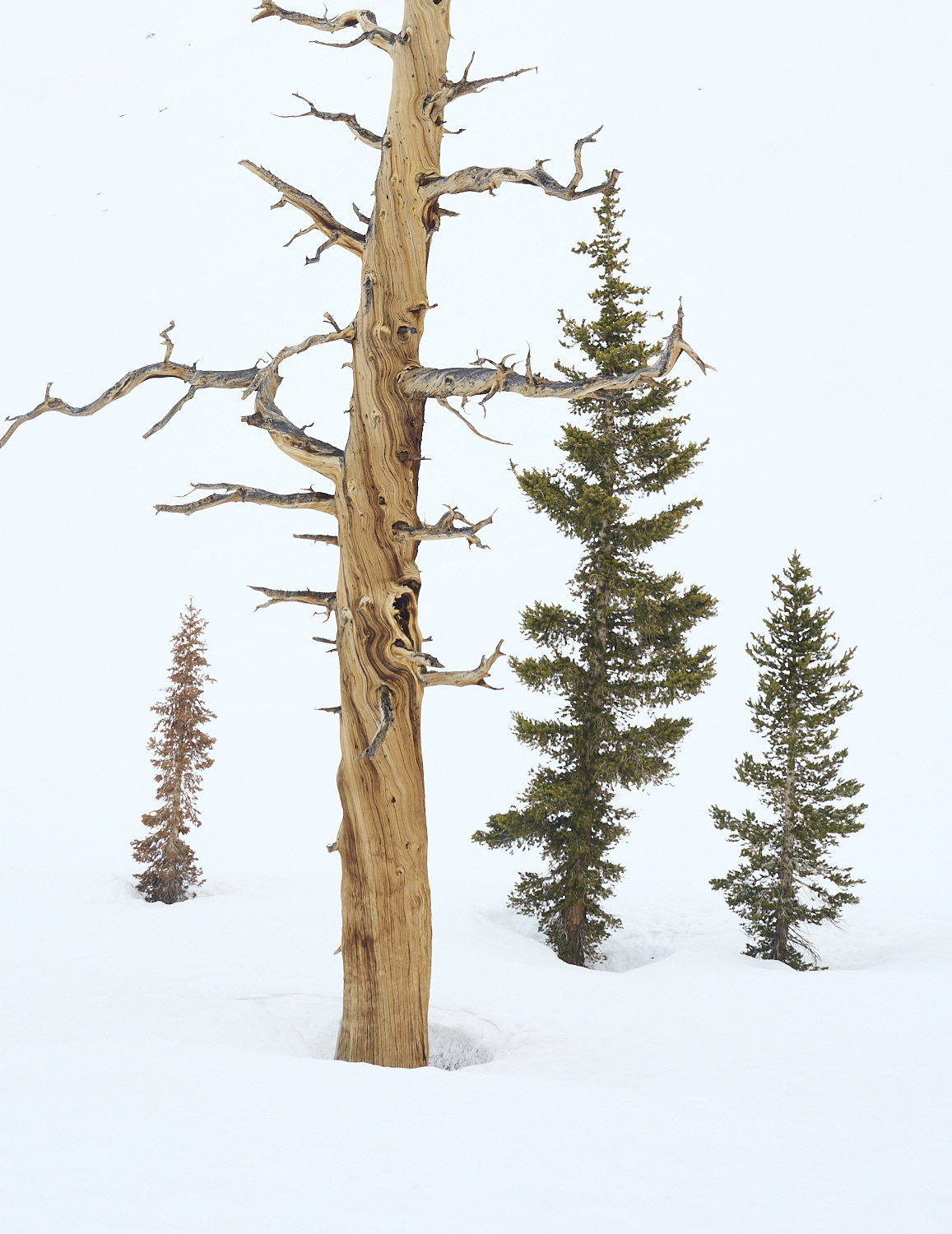
~Kilometer 1280, trees in the Sierra Nevada.
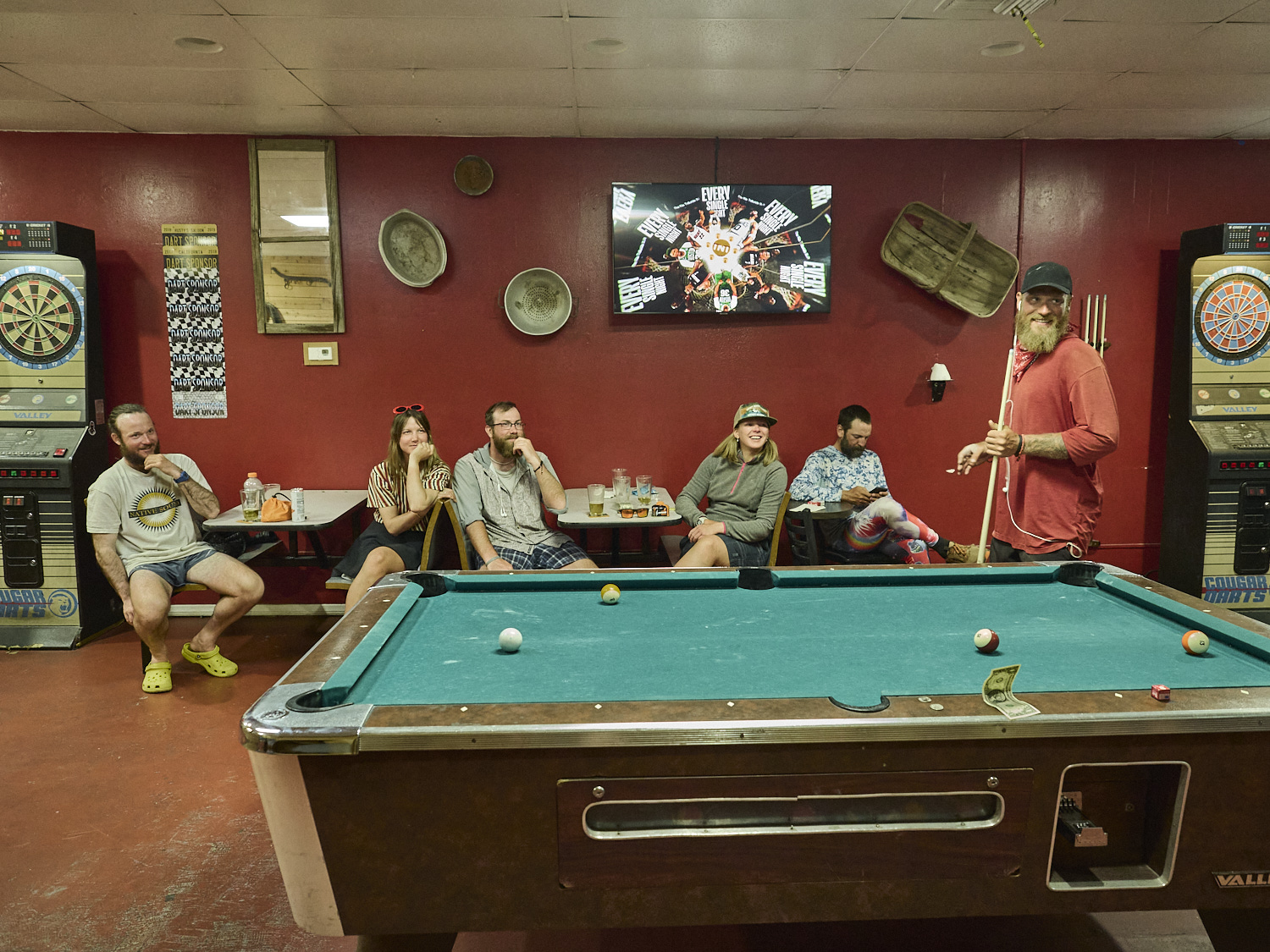
Hikers are enjoying a game of pool and some beer at a saloon in Bishop. Bishop is a small town in Owens Valley east of the Sierra Nevada. It’s an important town for hikers to relax and to buy food for the next trail section in the mountains.
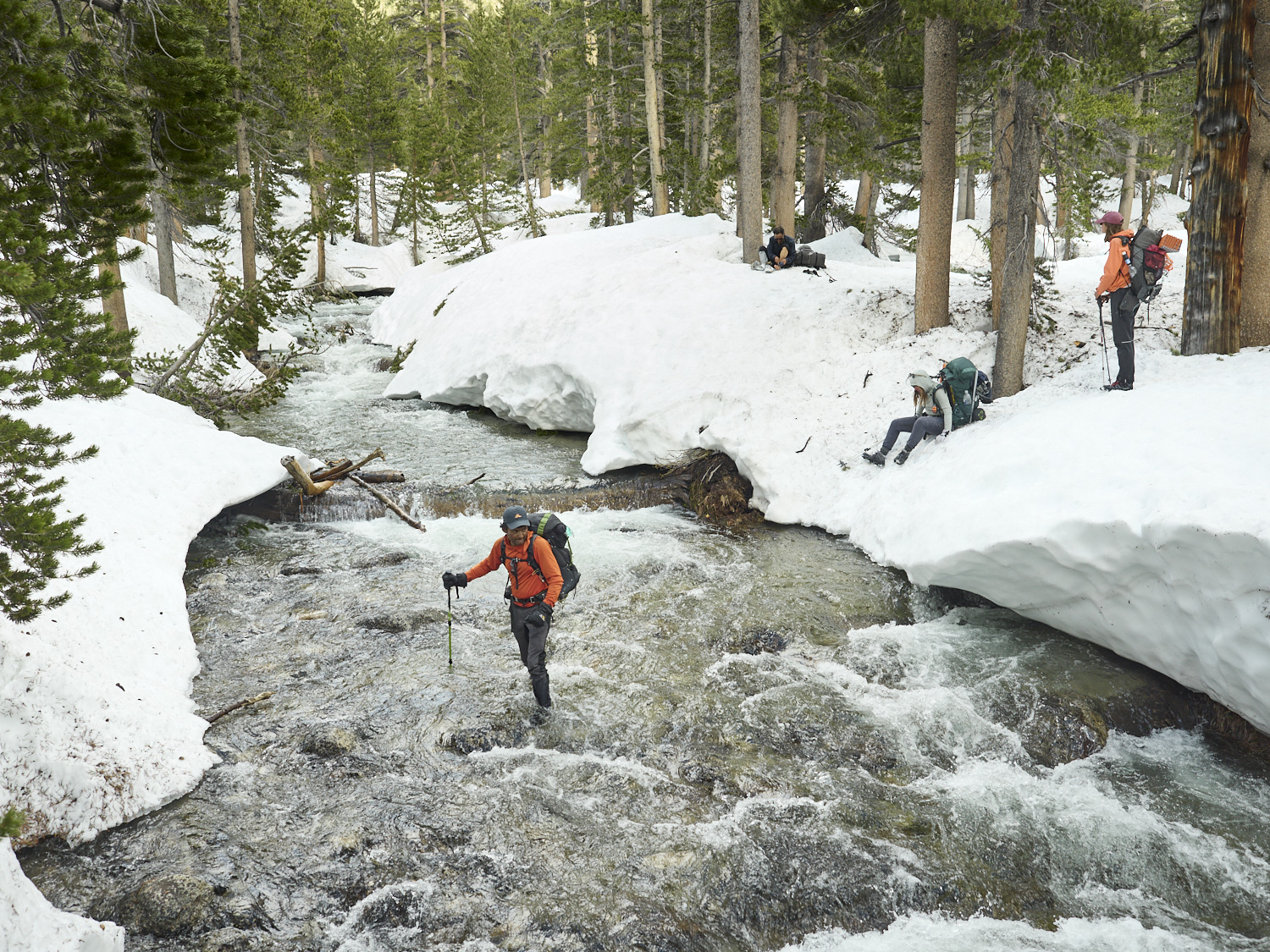
~Kilometer 1306, „Gump" crosses a river. River crossings are especially dangerous during the melt season after a high snow winter.
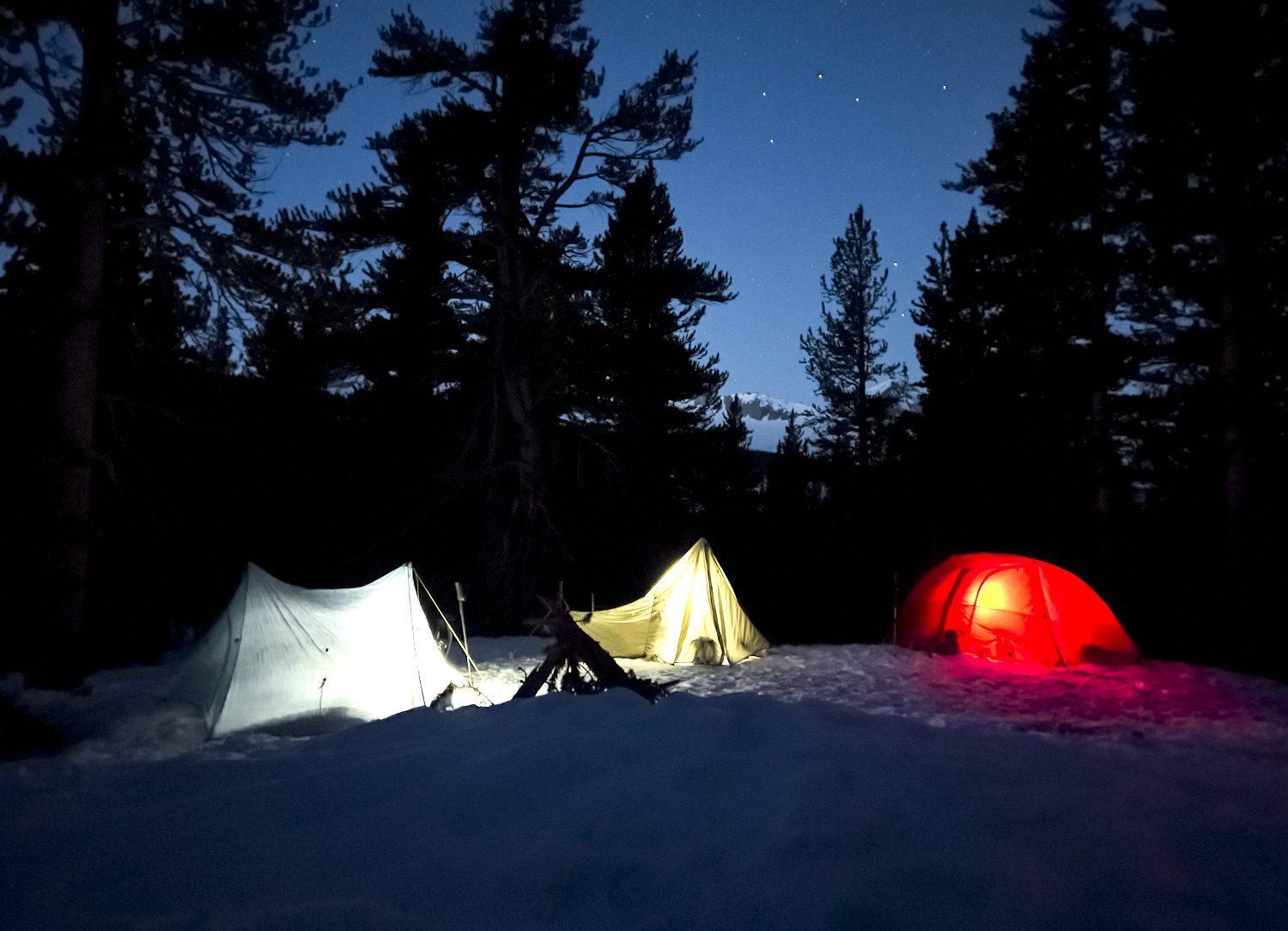
Kilometer 1308, early start at 4:40 AM in the morning. During night temperatures hit lows under 0°C. Frozen snow allows faster and easier hiking in the morning. After noon the warm sun is melting the snow. The resulting slushy snow makes hiking again slow and exhausting.
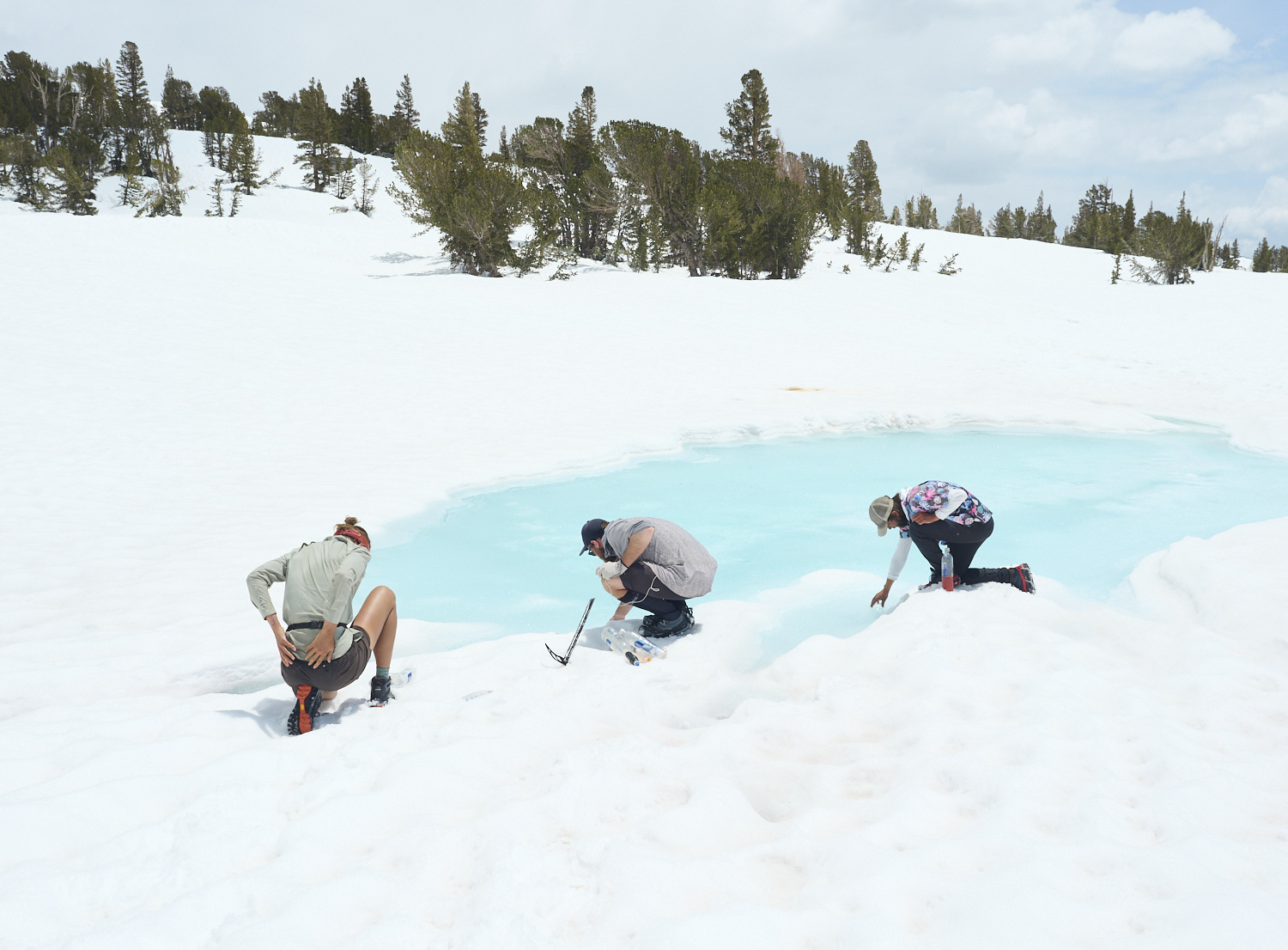
~Kilometer 1486, hikers are filling their bottles at a frozen lake.
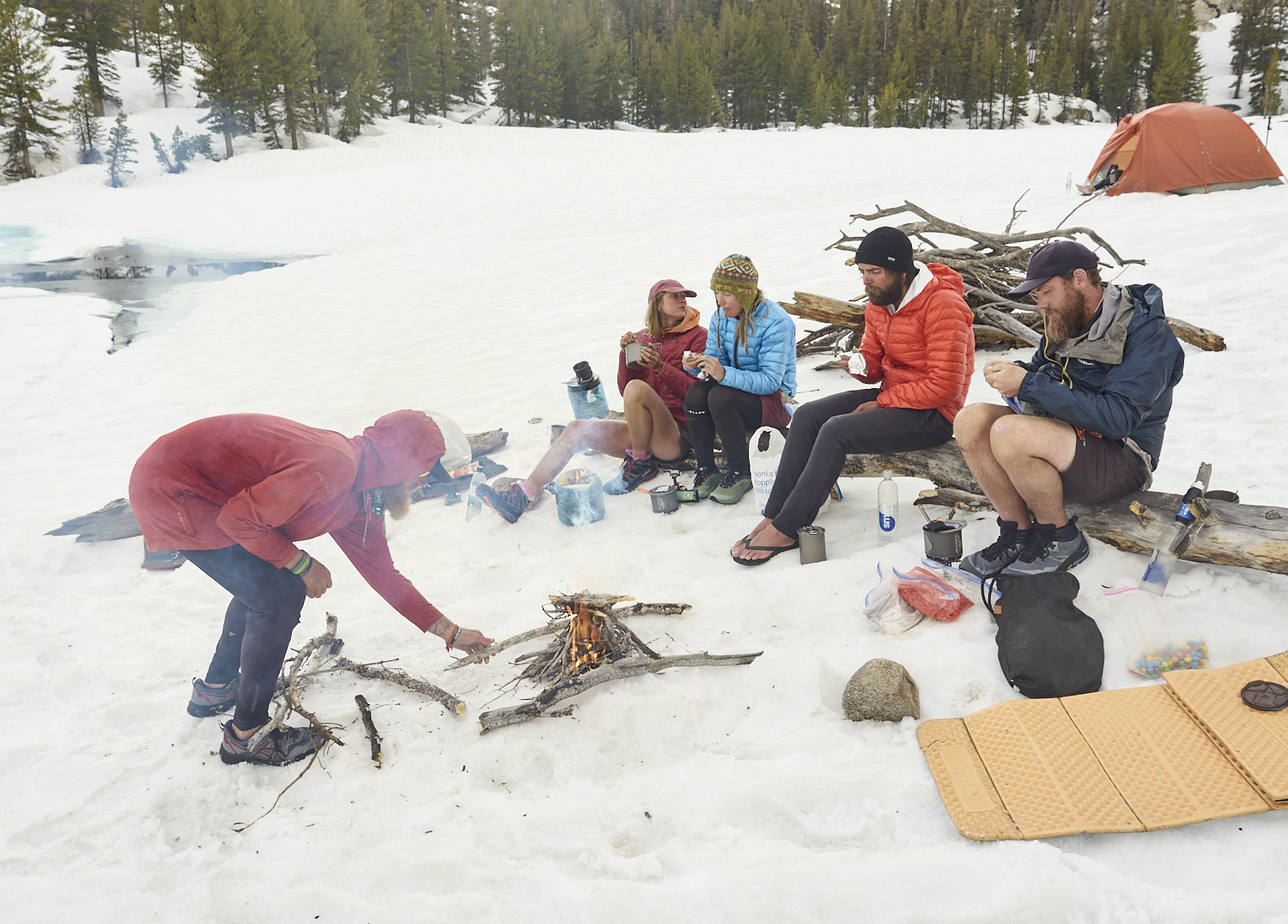
Kilometer 1546, hikers are eating their lunch next to a camp fire at Miller lake.
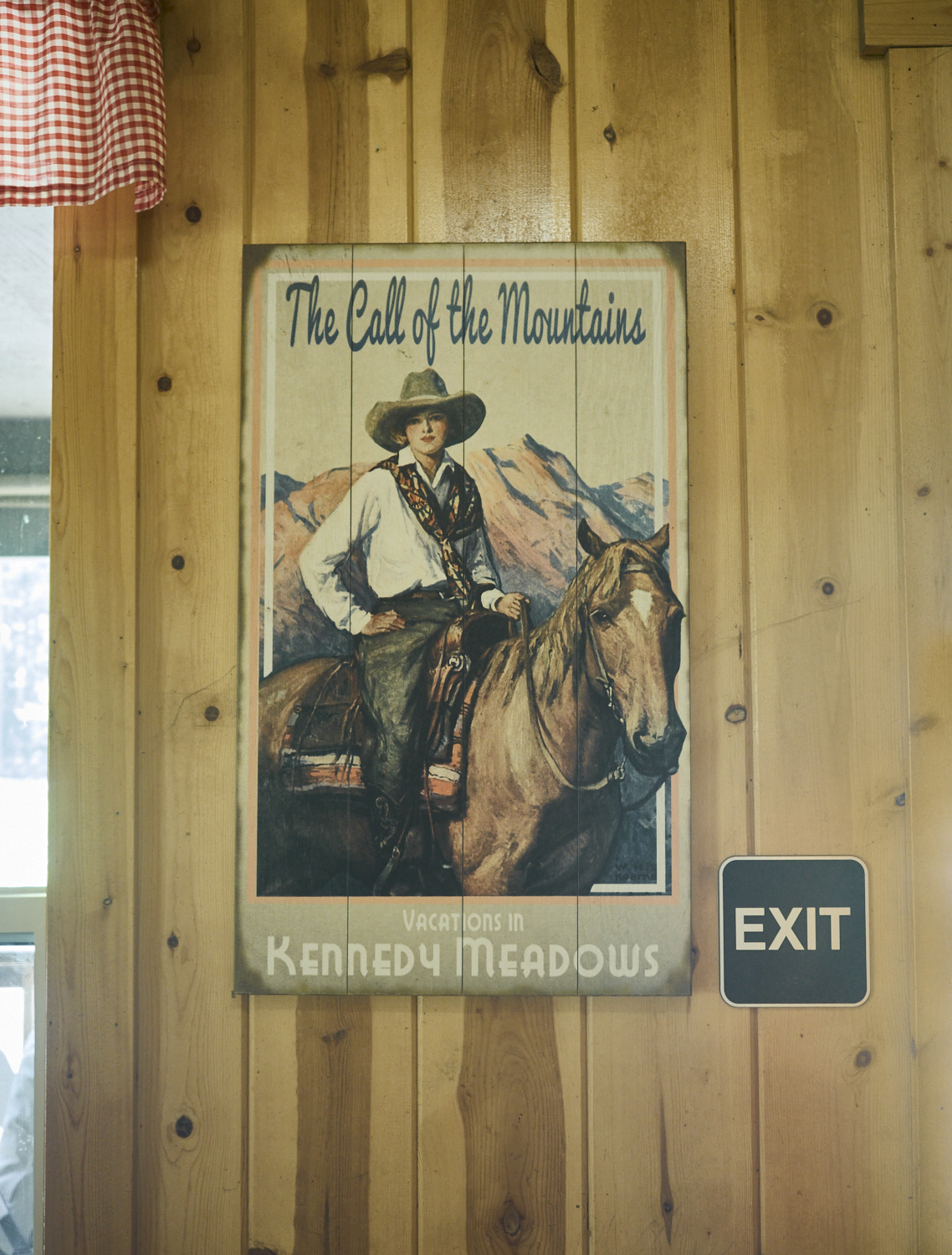
Western ambience in Kennedy Meadows (North). Kennedy Meadows is a resort and pack station some kilometers west of the PCT near Sonora pass (kilometer 1638).
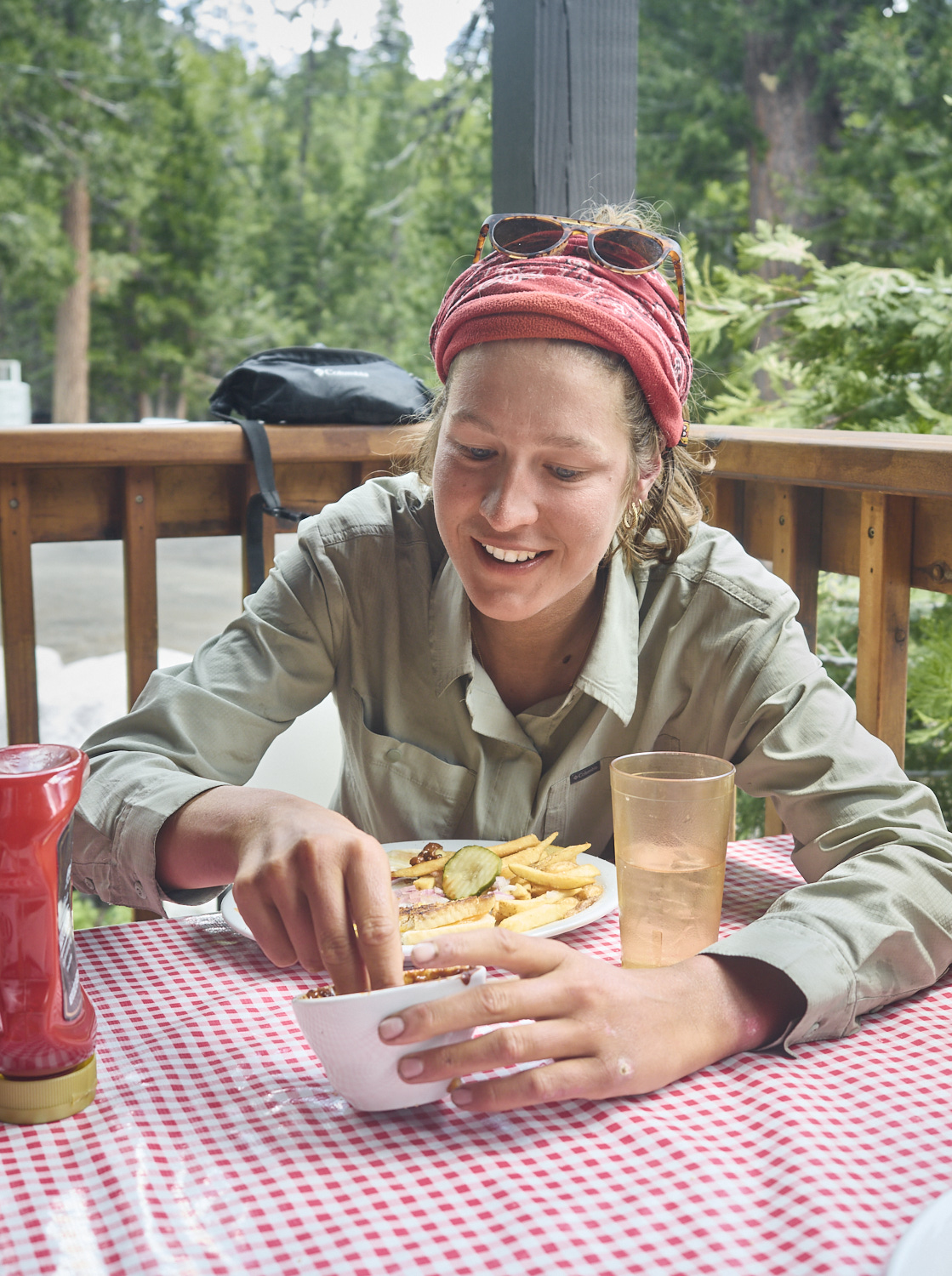
Susan is enjoying a warm meal in Kennedy Meadows after some hard days in the mountains.
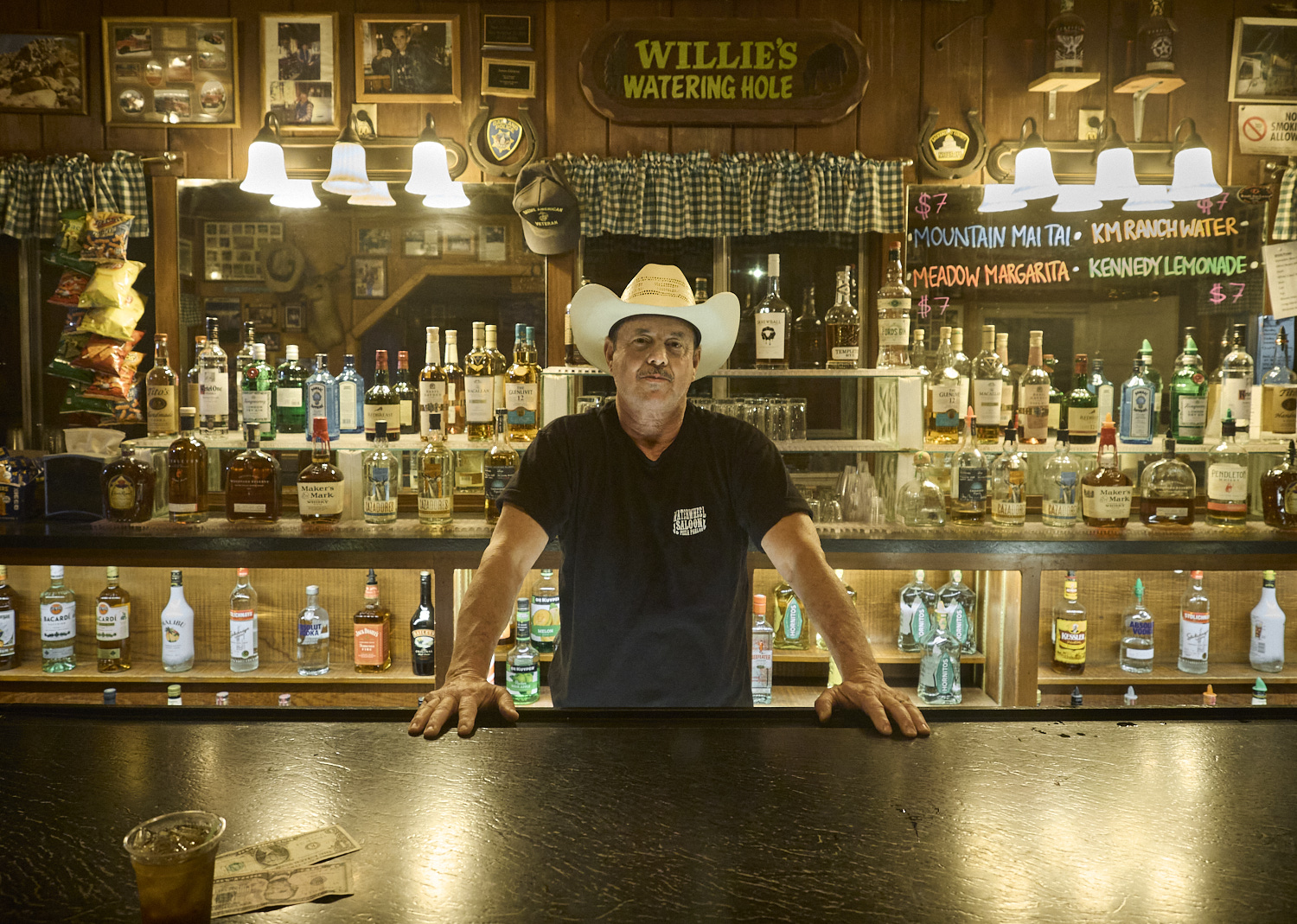
A bartender in a saloon.

~Kilometer 1773, plants after melt season. After more than 500 kilometers hiking on snow hikers were experiencing frequently snow free trail north of Sonora-pass. Long sections of snow-covered trail still existed in 2023 till mid July just before Sierra City (kilometer 1925).
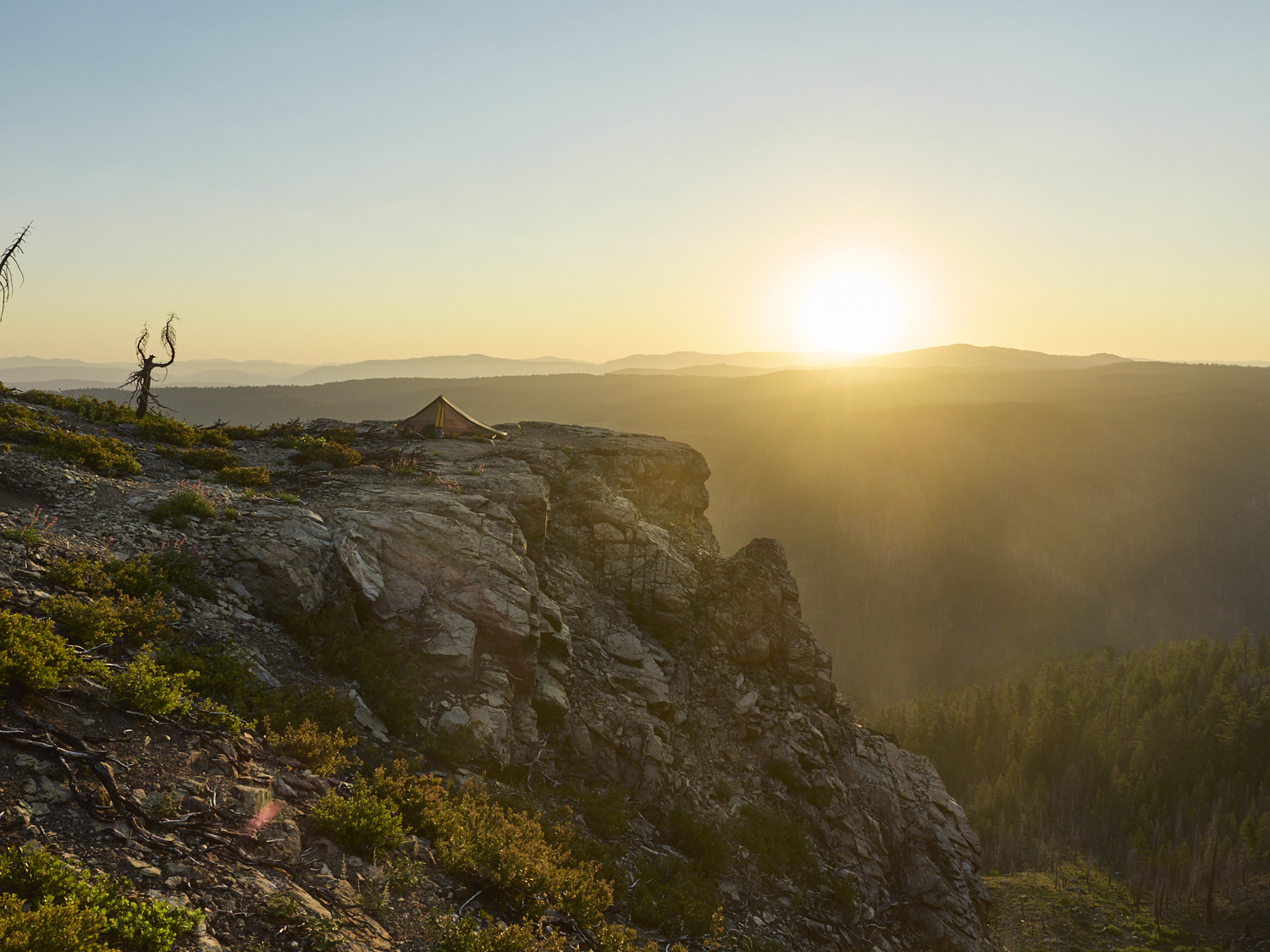
Kilometer 2029, sunrise over Lookout Rock.
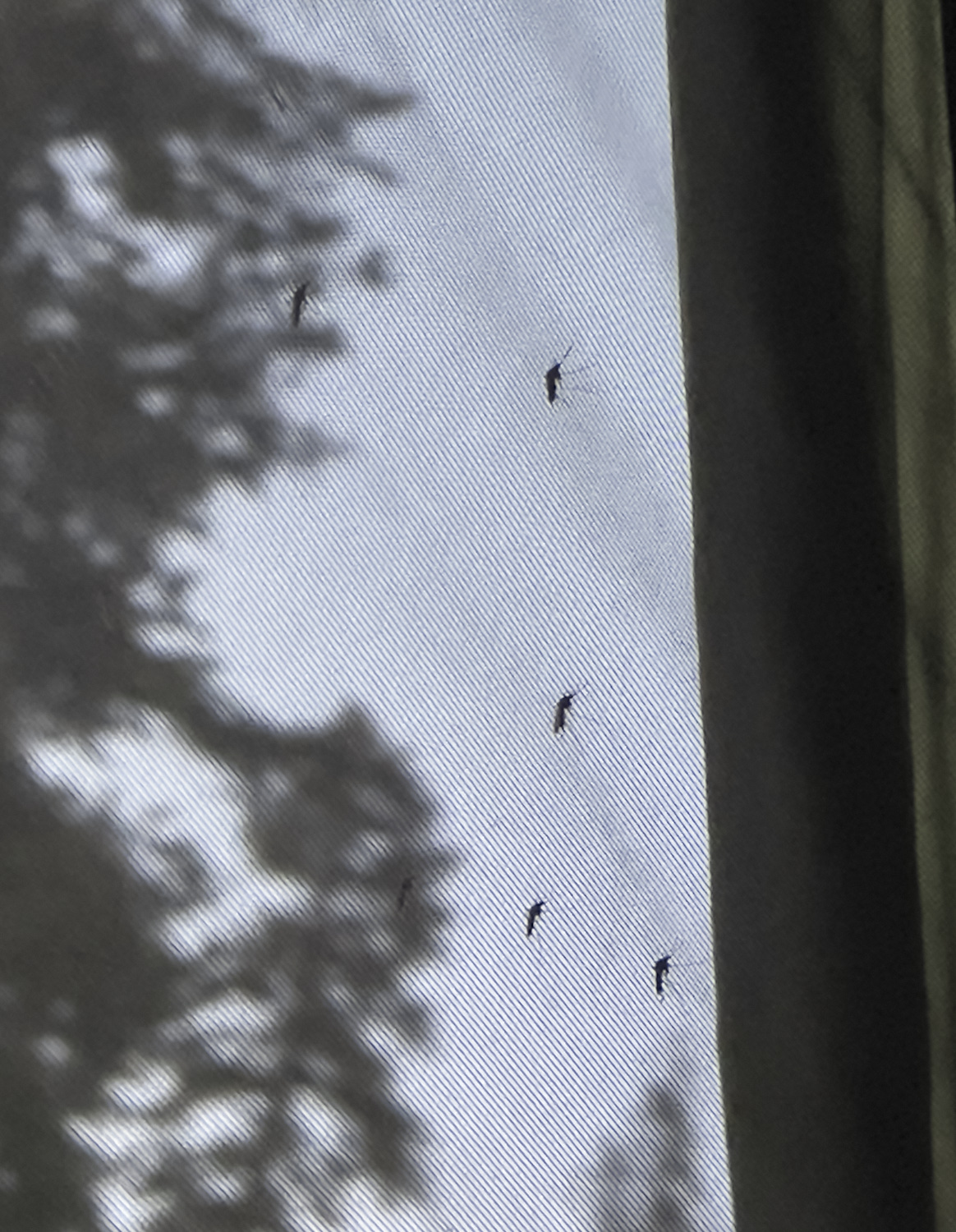
Kilometer 2049, mosquitoes outside of tent. After melt season mosquitoes are harassing hikers for many weeks along many parts of the PCT.
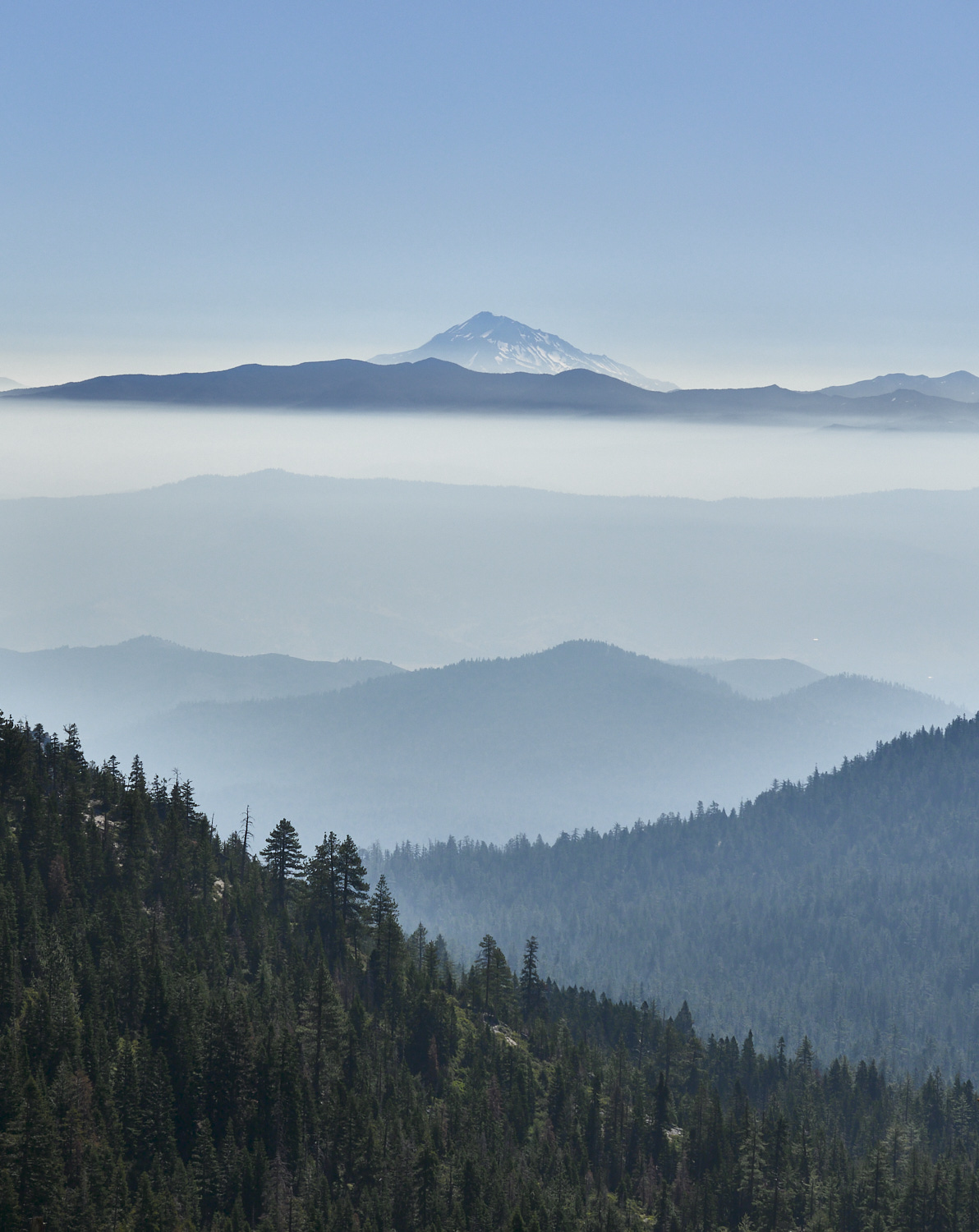
~Kilometer 2560, view to Mount Shasta over a layer of smoke and morning mist. Mount Shasta (4322m) is a volcano in northern California. It is potentially still active and part of the Cascade Range. The PCT traverses the Cascade Range from Northern California to the end at the Canada-United States border.
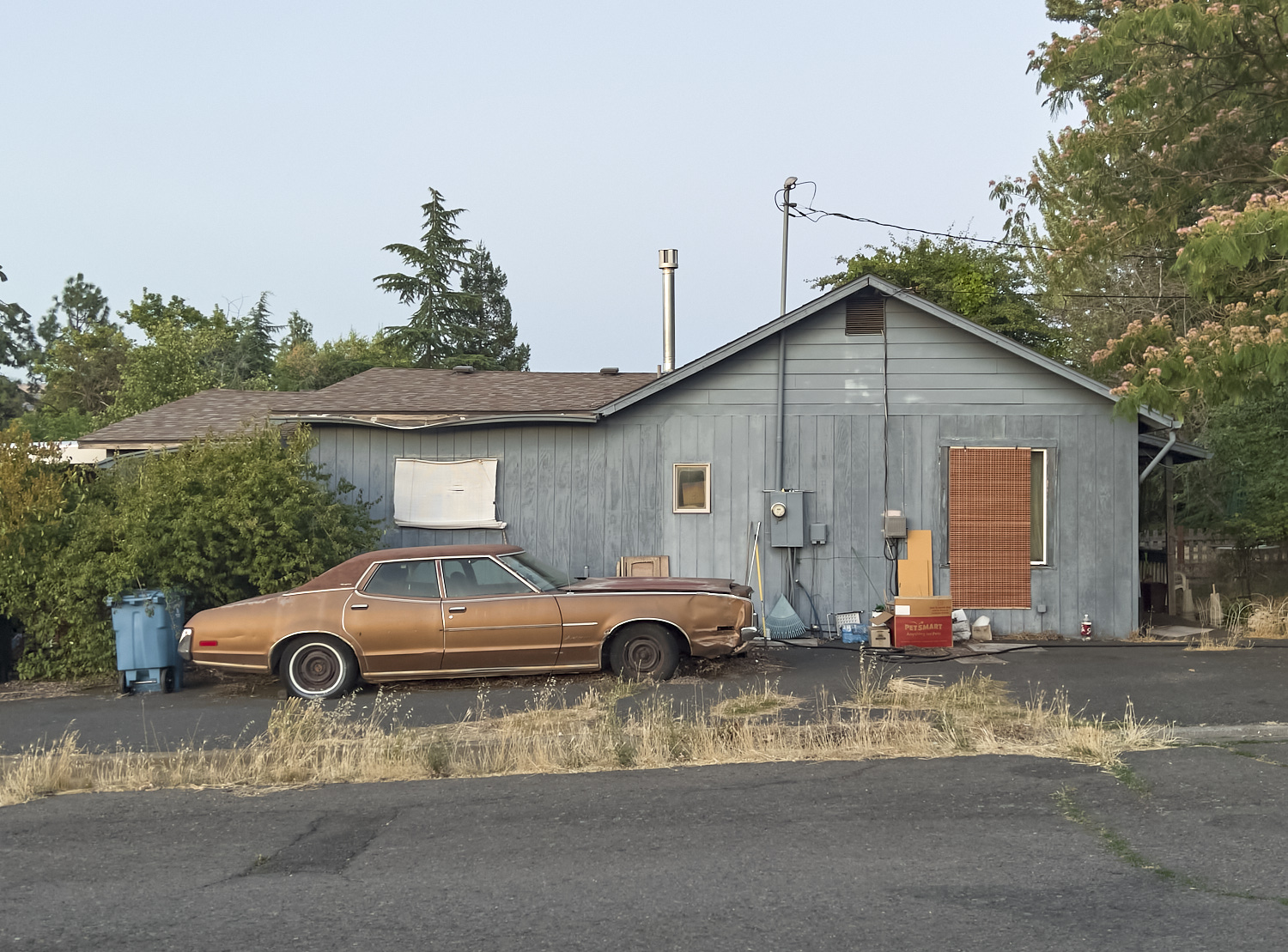
Ashland (Southern Oregon), an old car in front of a single-family house. After 2724 kilometers in California hikers finally arrive in Oregon, where their first visited town is mostly Ashland.
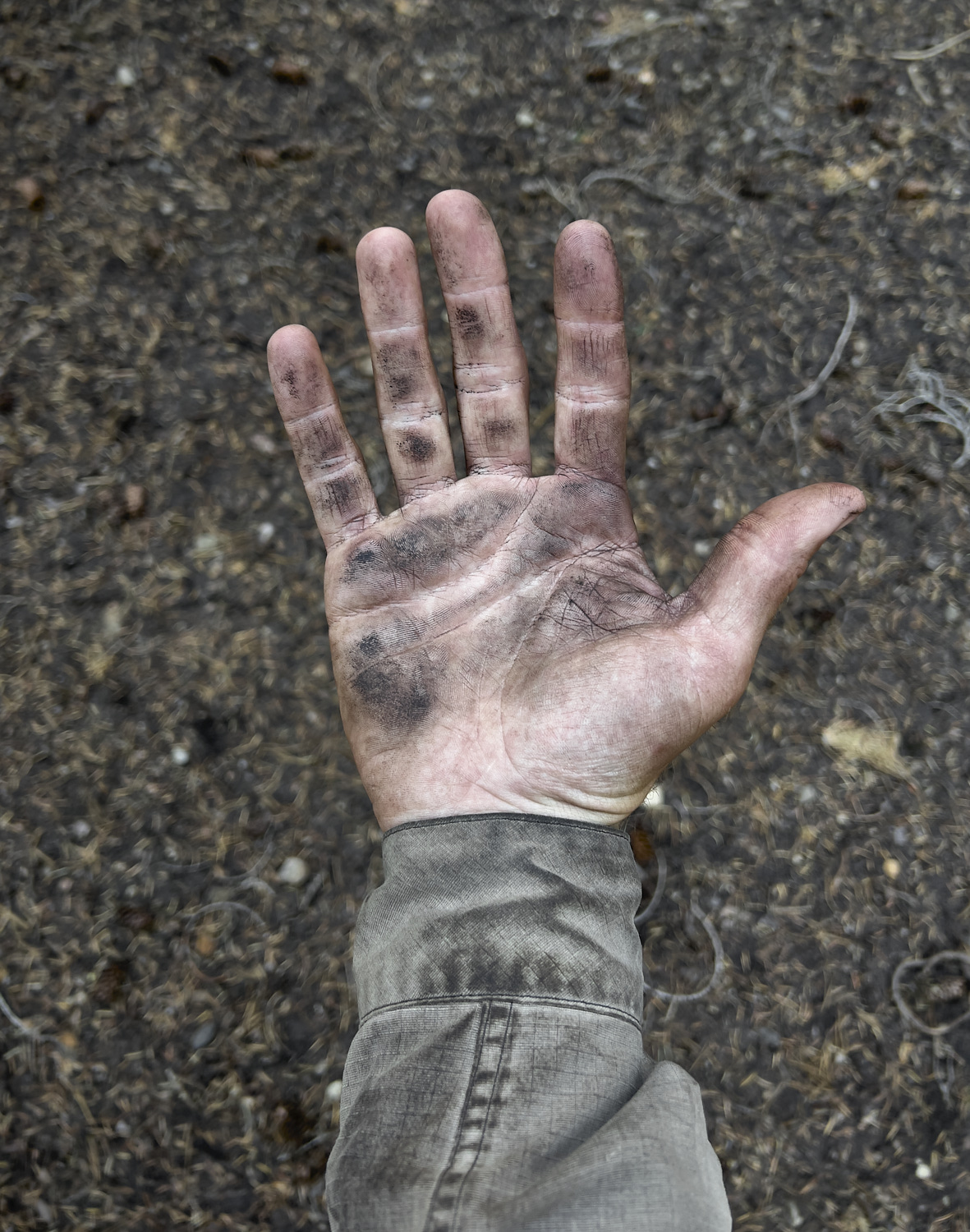
Dirt is quite normal during a thru-hike.
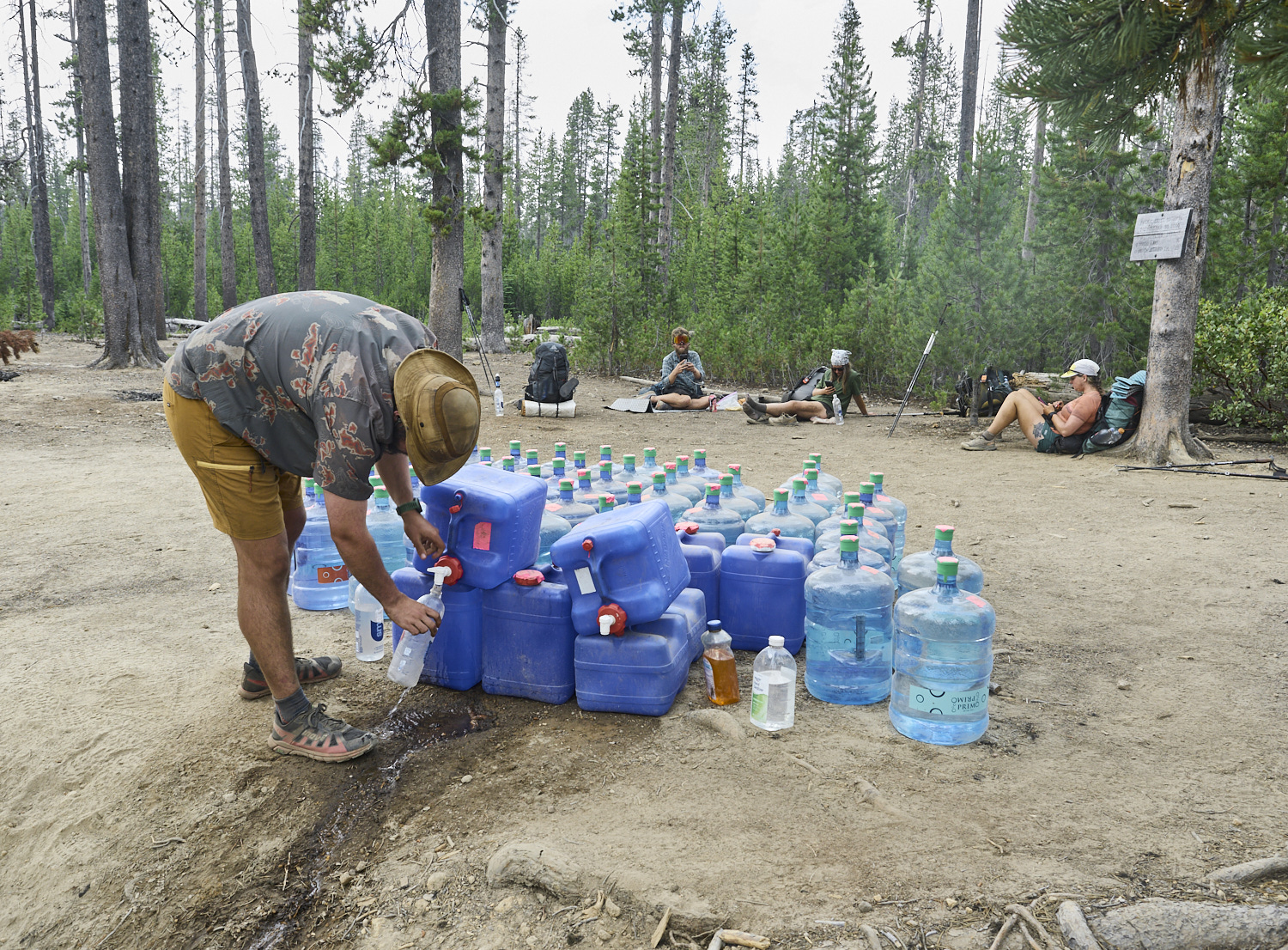
Kilometer 2976, „Chair Bear“ is filling his water bottle at a water cache. In dry areas water caches are an important support for hikers. These water caches are organized by voluntary supporters, so called „trail angels“.
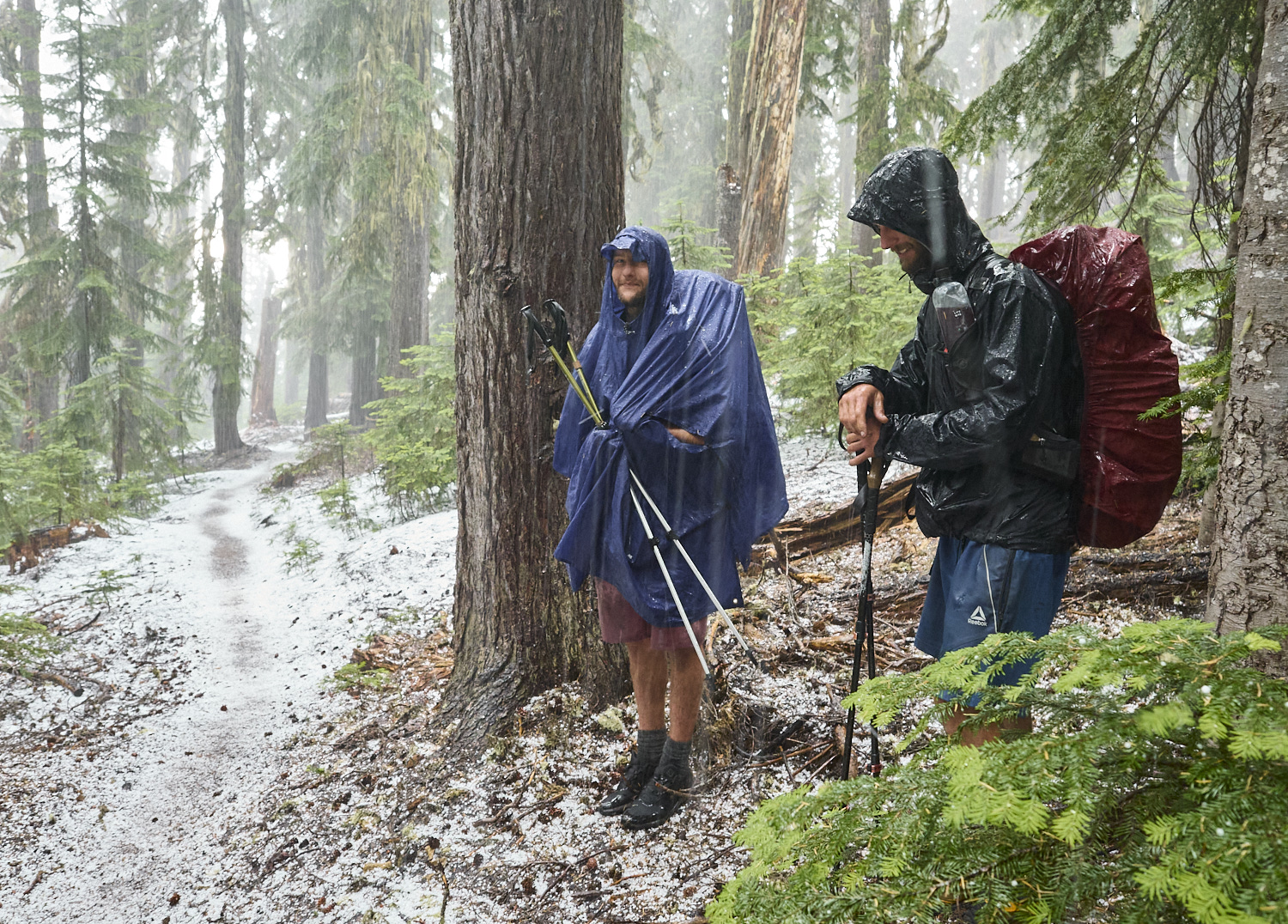
~Kilometer 3018, two hikers are searching for cover under a tree during a strong thunderstorm.
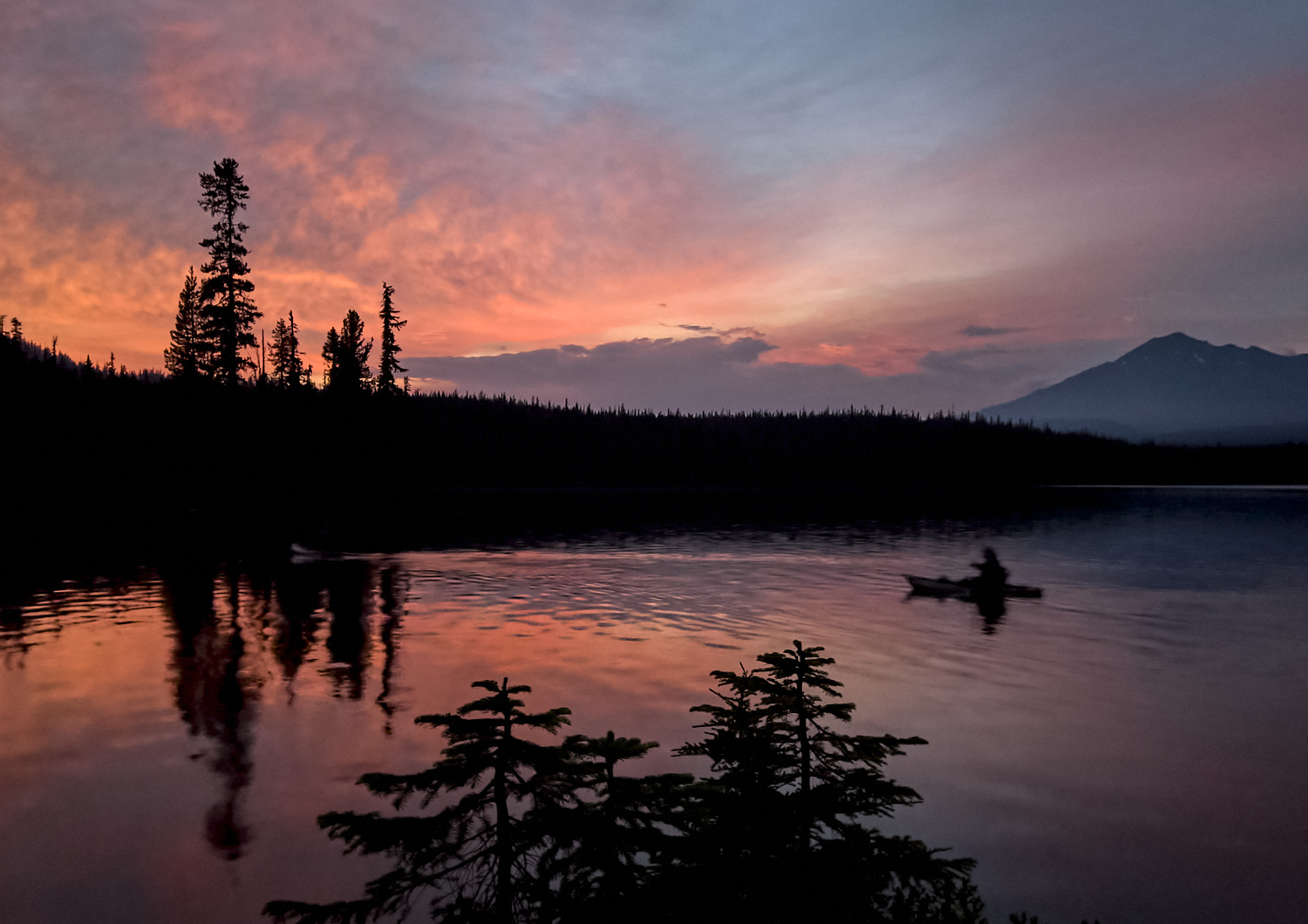
Kilometer 3042, a kayaker is enjoying the intense sundown after a thundery day on summit lake.
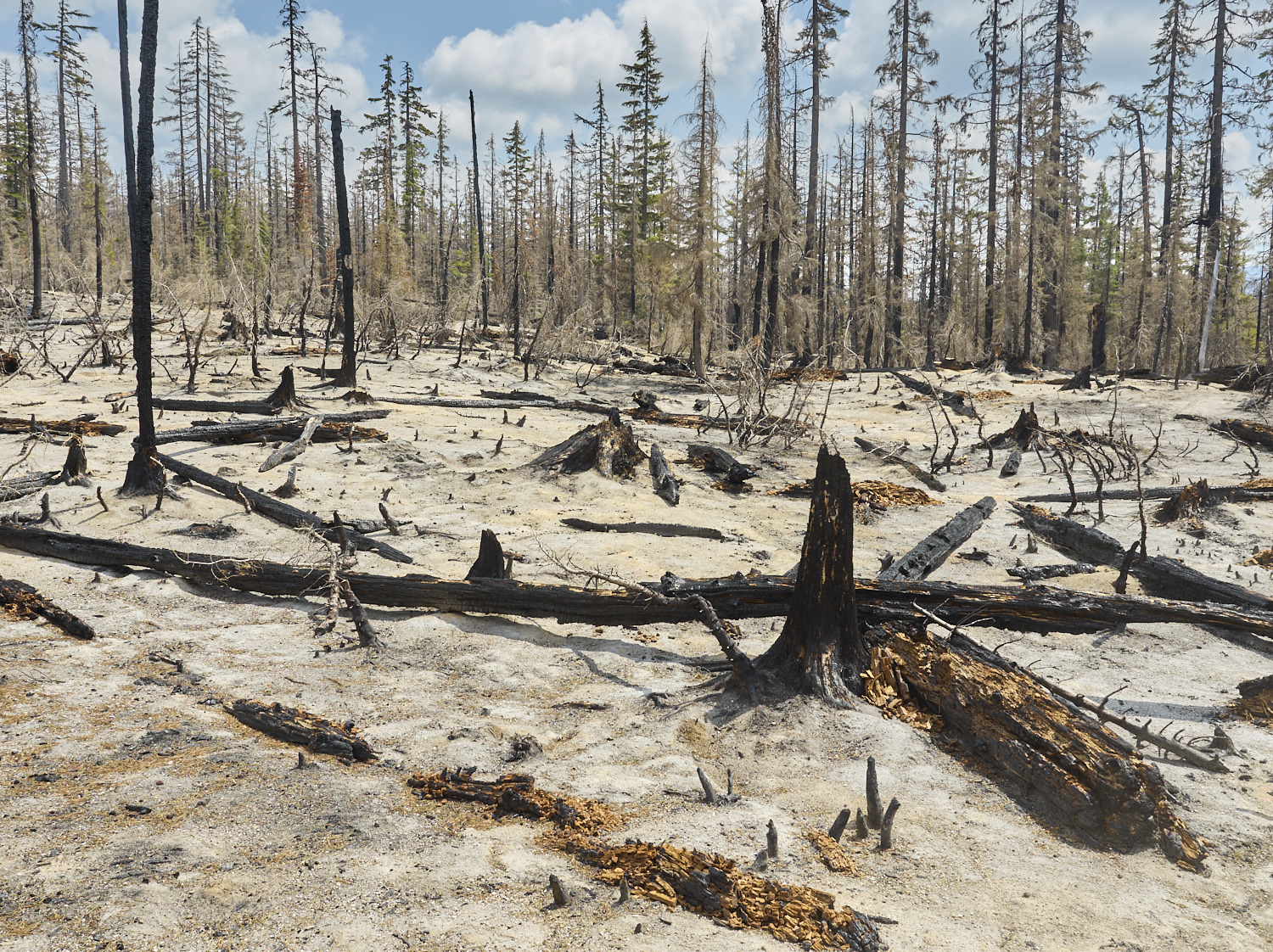
~Kilometer 3097, a burn area. From august wildfires are regularly impacting a thru-hike on the PCT. Every year many hikers are forced to take detours or skip an entire section due to wildfires or intense smoke.
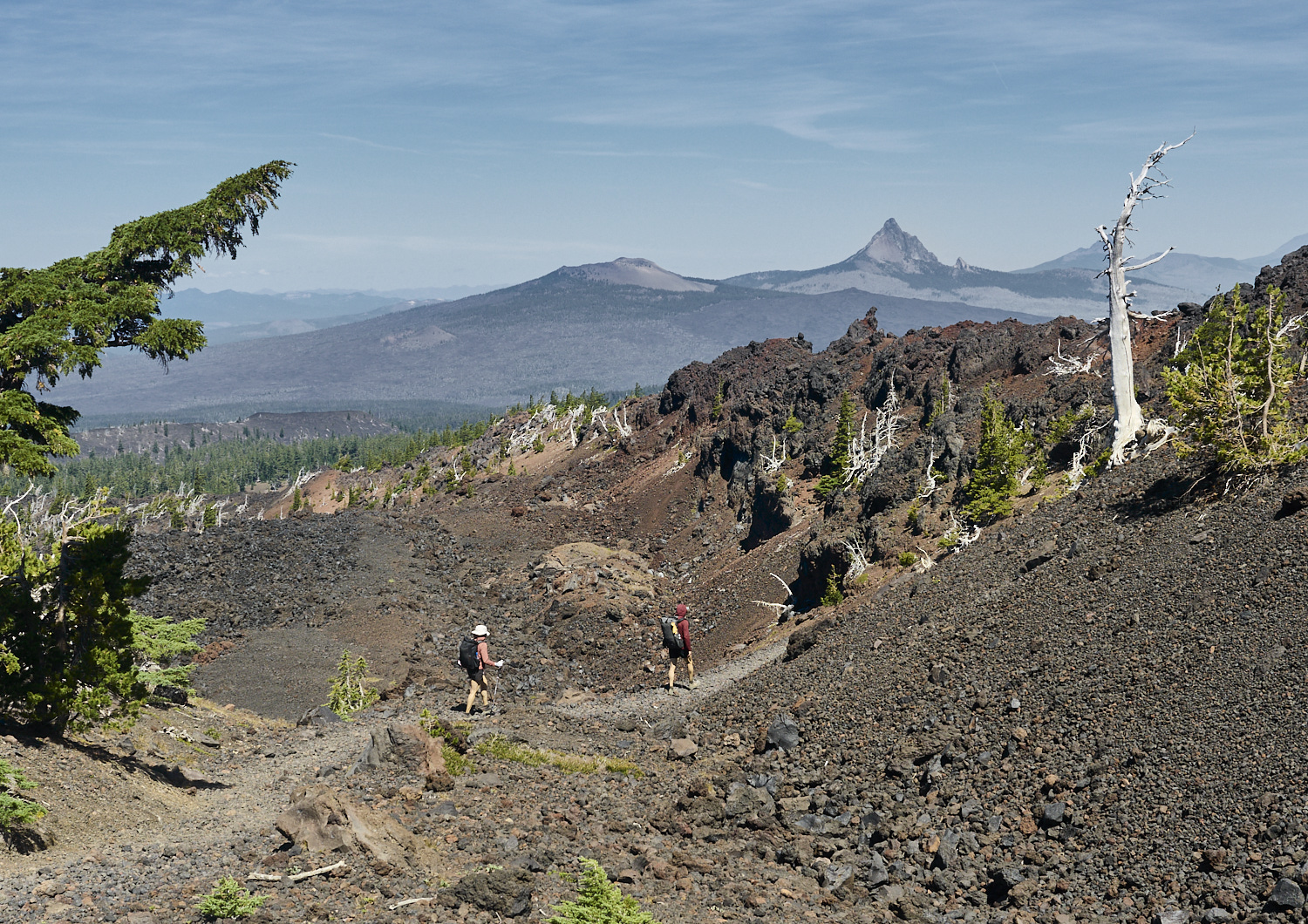
~Kilometer 3180, two hikers are hiking through lava fields in Oregon. Mount Washington (pointy) can be seen in the background.
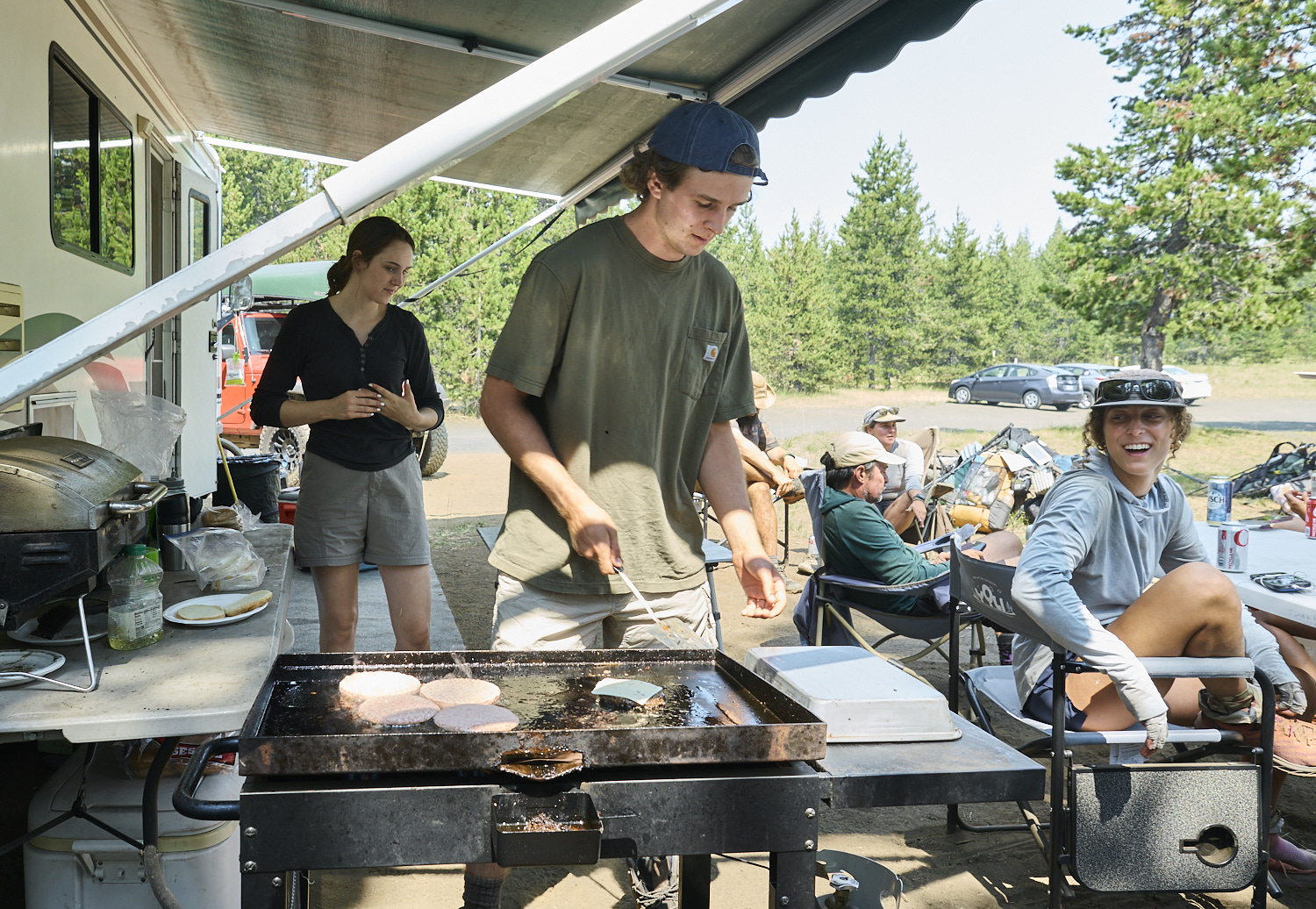
Kilometer 3216, „Trail Magic" at „Magic Mike“. „Magic Mike“ (not in picture) is a „Trail Angel“ (voluntary supporter), who provides Trail Magic (free food and drinks) for many weeks per year next to the trail for hikers.

Kilometer 3460, hikers and visitors at the PCT days. PCT days are a two day festival held every year in august in Cascade Locks/ Oregon at the Columbia river. The Columbia river forms the border to Washington in this area.
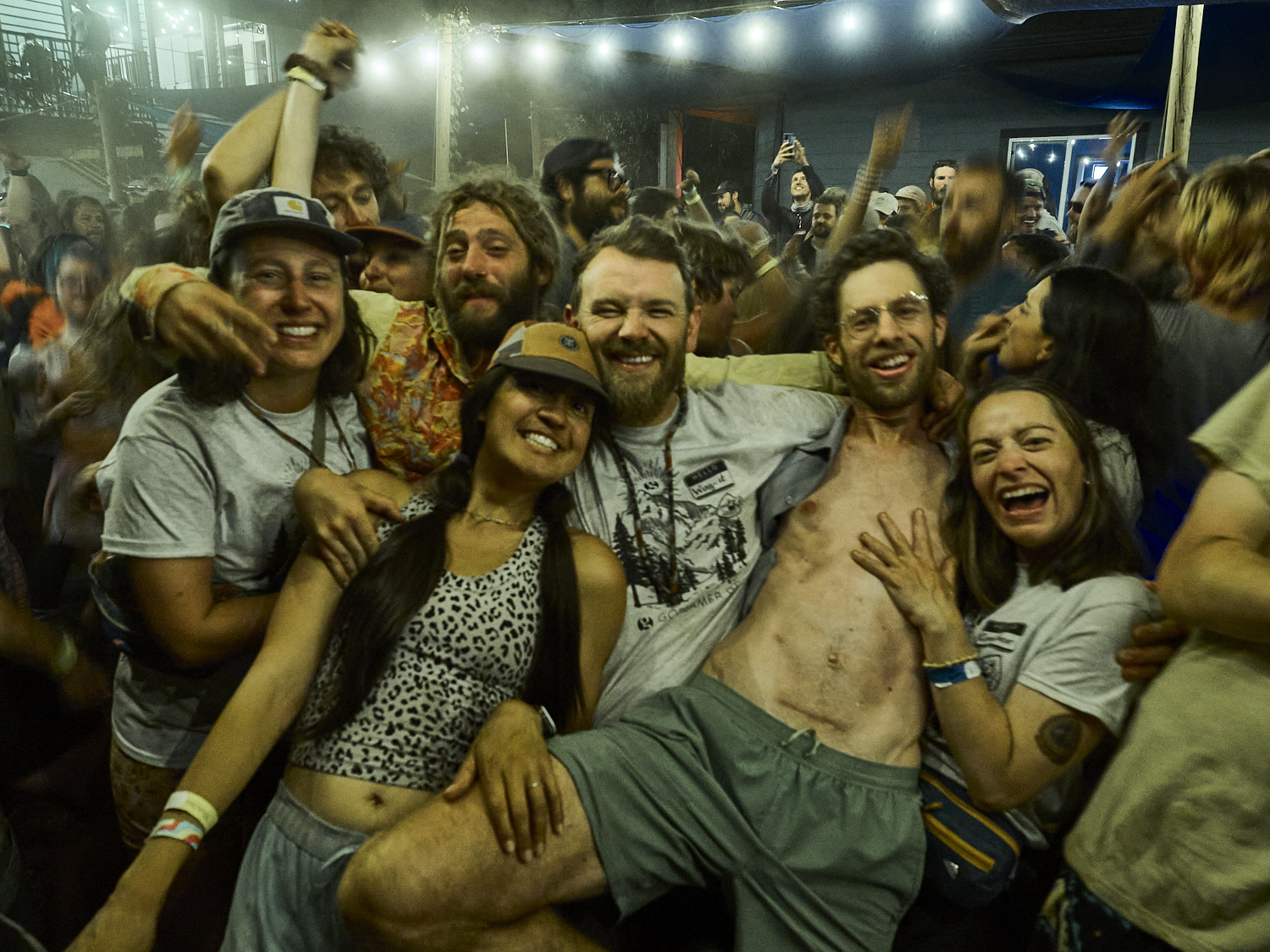
Kilometer 3460, hikers having fun at a party during PCT days. What looks like dirty skin is not caused by the poor light. Hikers often refer themselves ironically as hiker trash.
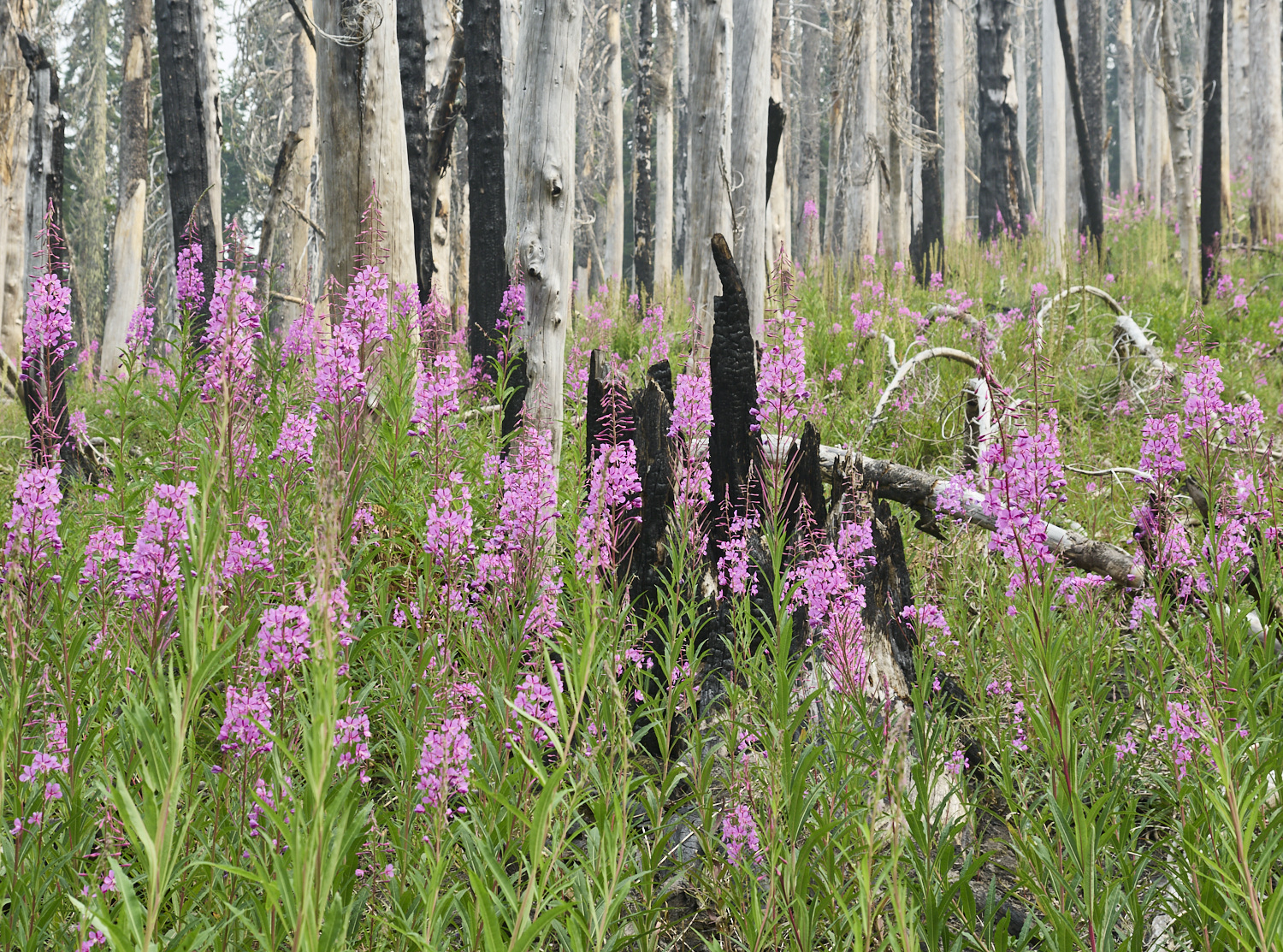
~Kilometer 3560, wild flowers in a burn area.
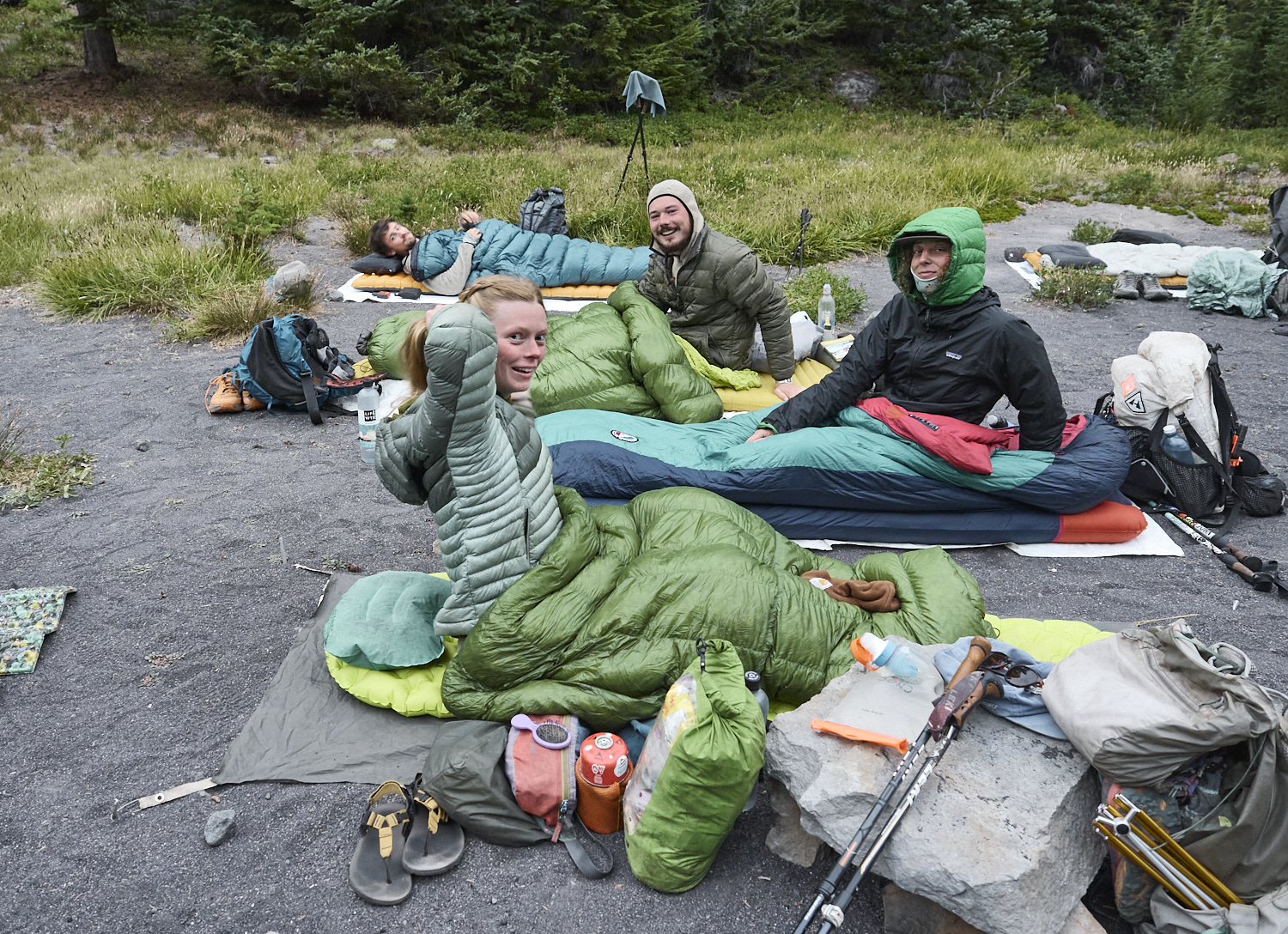
Kilometer 3607, „tiny Bladder“, „Spigot“, „Post Holone" and „Big Mac“ (from front to back) are cowboy camping. Sleeping without tent under the open sky is called cowboy camping.
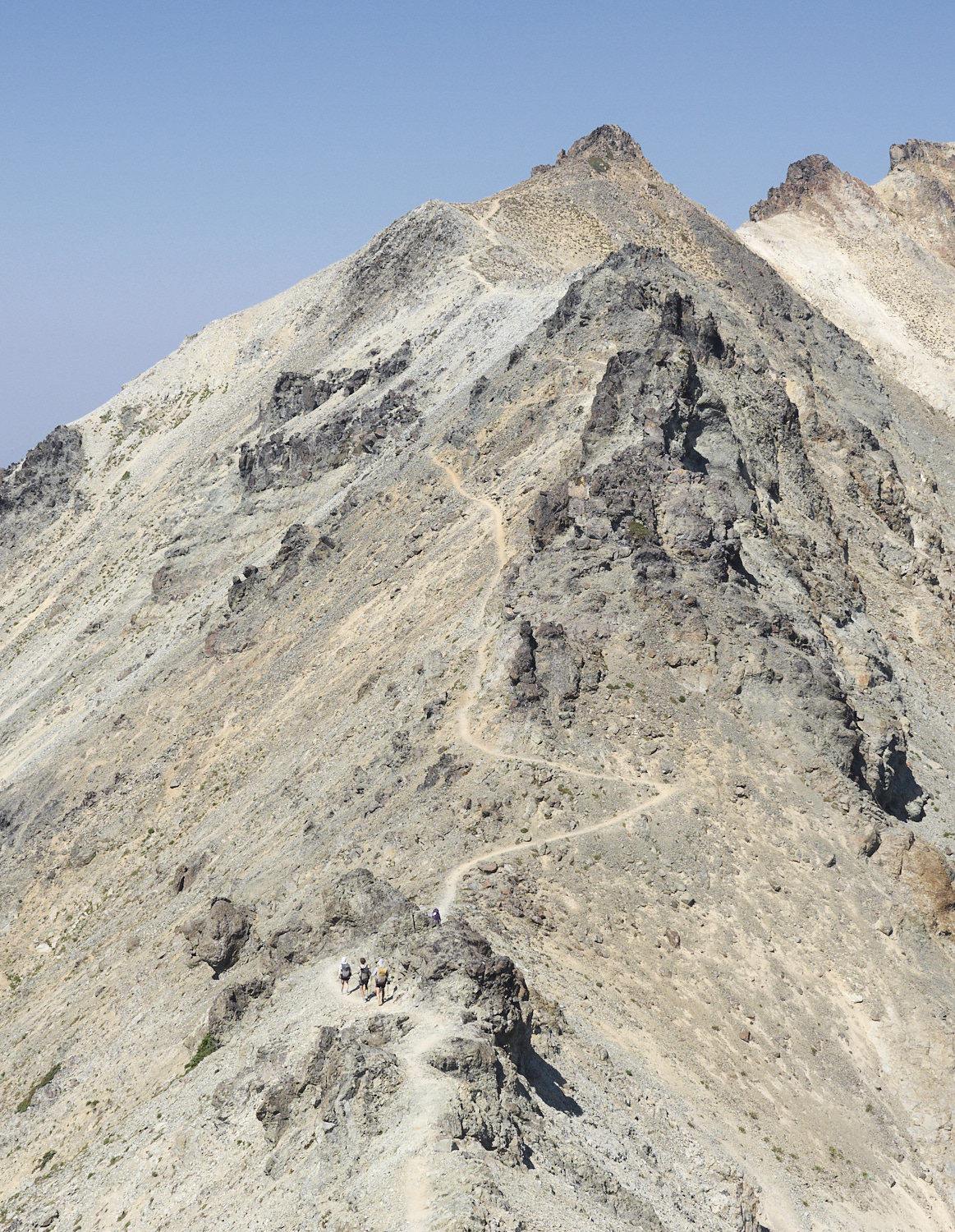
~Kilometer 3669, hikers in Goat Rock Wilderness in Washington.
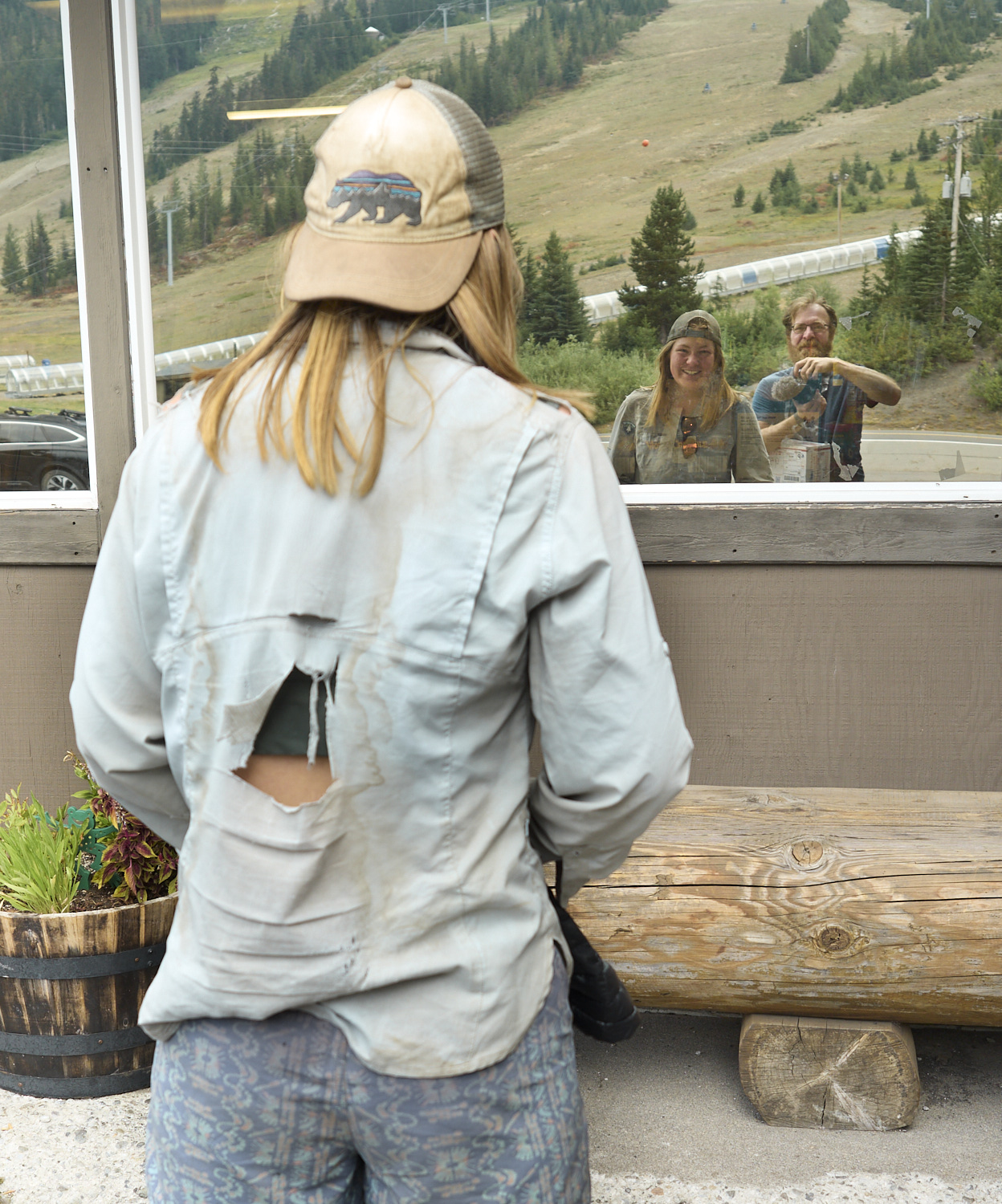
Kilometer 3697, Kracker Barrel at White pass, self portrait with „Shade“. After many months and several thousand kilometers equipment and clothes are commonly worn out.
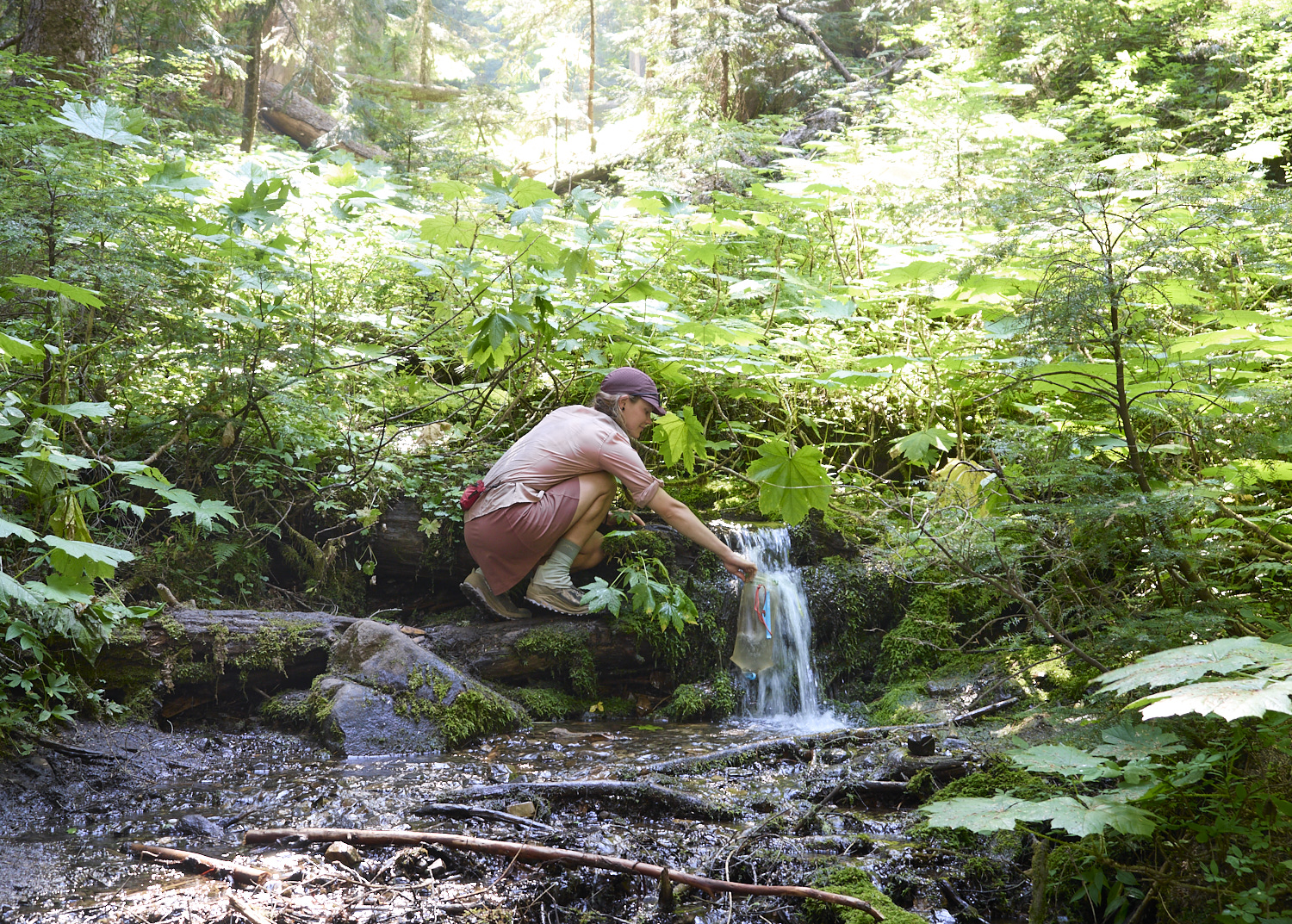
Kilometer 3808, a hiker fills her bottle at a stream.

Kilometer 3856, a convenience store at a gas station at Snoqualmie pass. Sometimes hikers have a quite limited variety of food options for buying. At this store a wide variety of books were available. A book was quite cheaper than a beer. I preferred buying some beer.
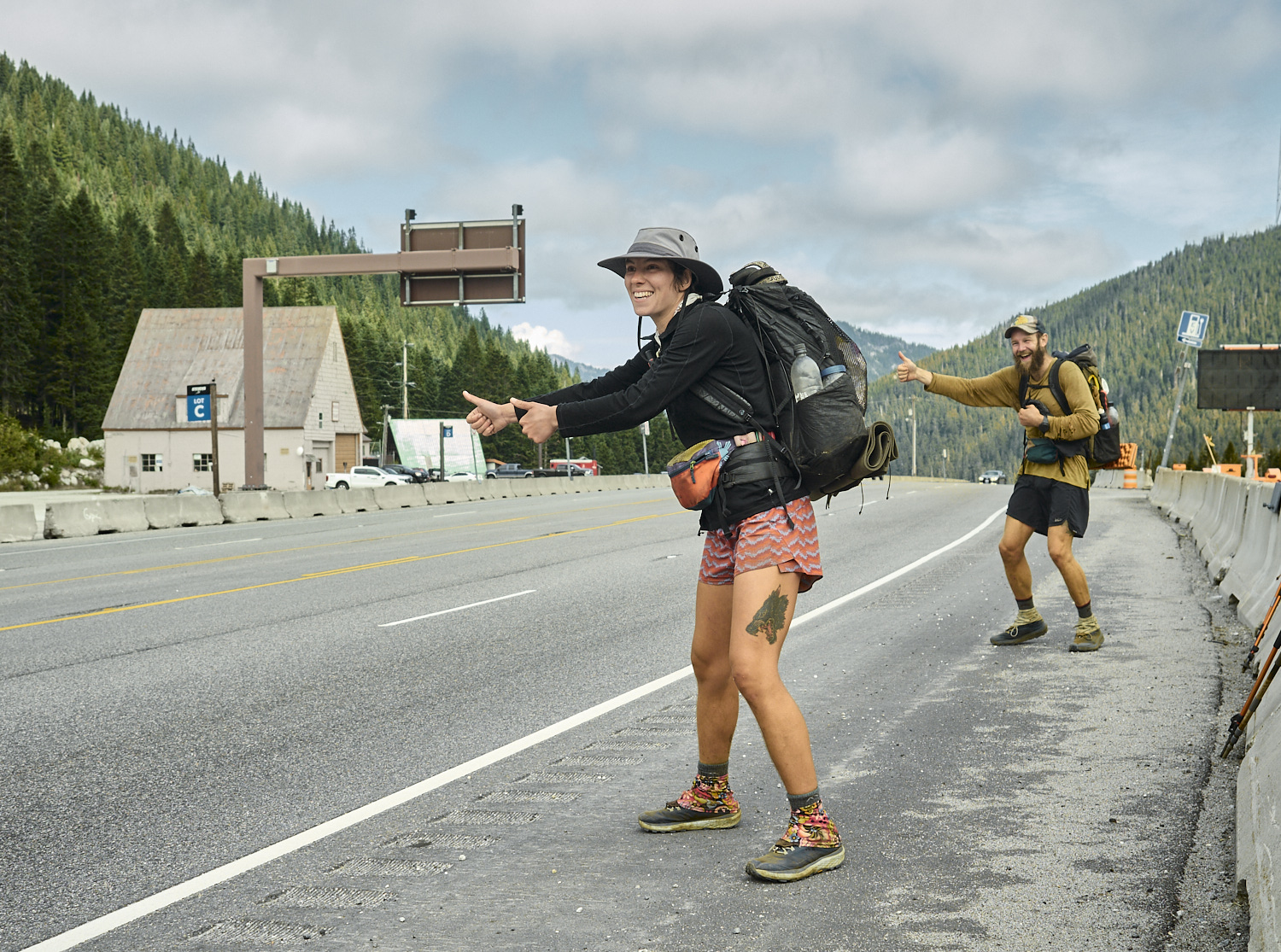
Kilometer 3970, two hikers are hitchhiking at Stevens pass. Hitchhiking is an important part of thru-hiking. Often it’s the only possibility to reach a town for supply and relaxing.
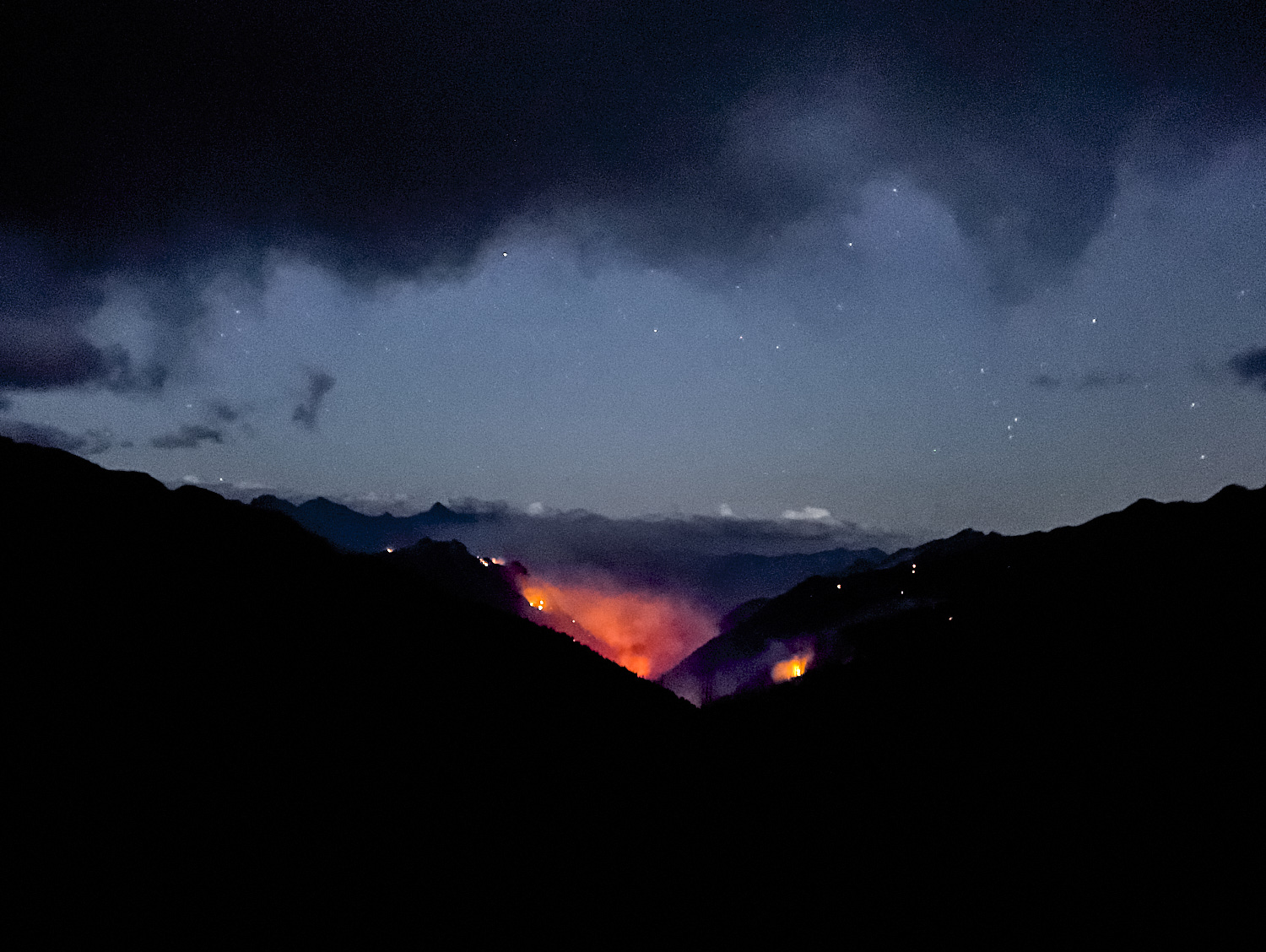
Kilometer 4031, a forest fire in Washington.

Kilometer 4032, morning in the Cascade range in Northern Washington. From west clouds are rising over the ridge. On the eastern side (left) smoke is rising from a small wildfire.
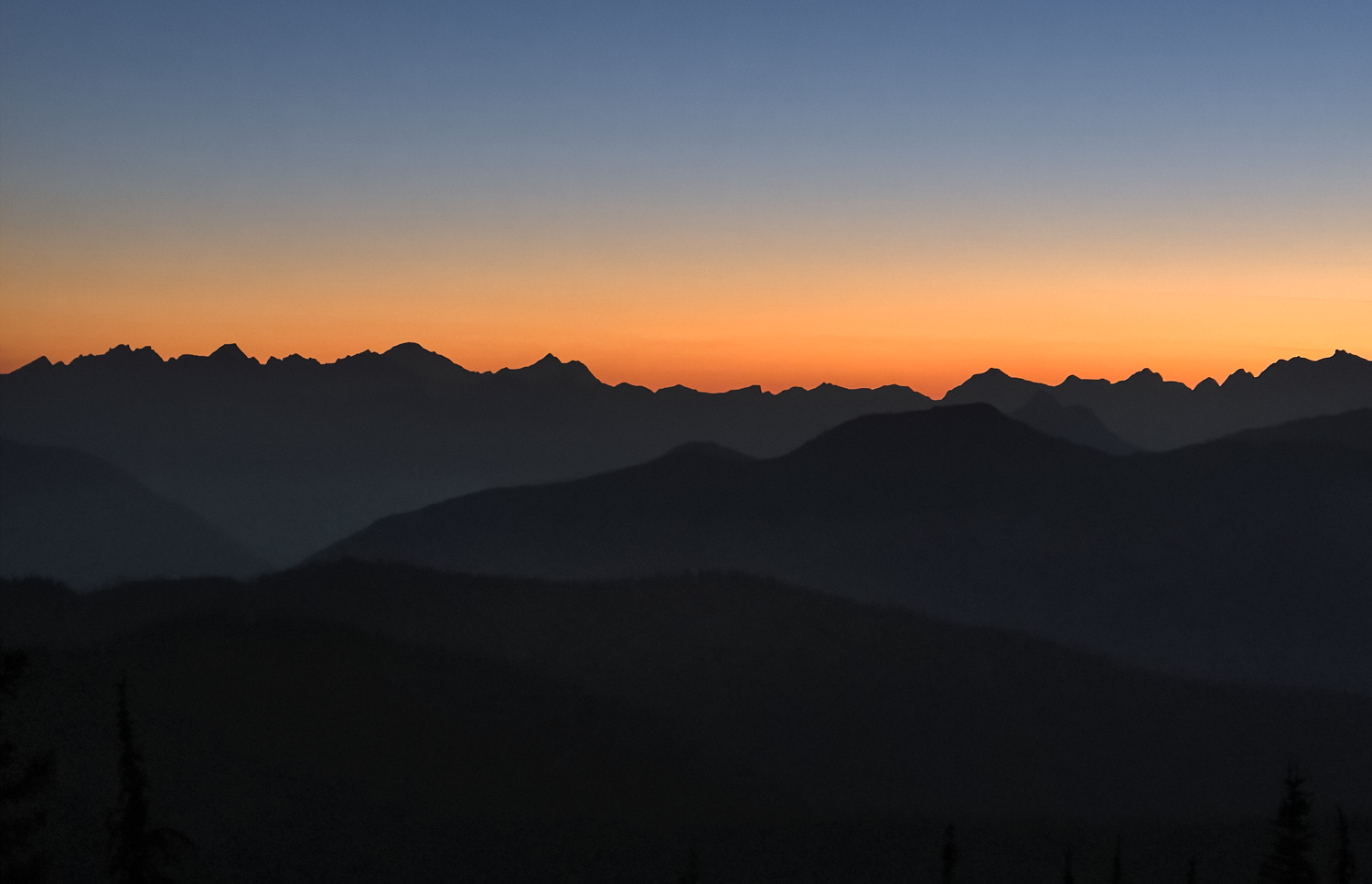
Kilometer 4260, evening in the Cascade Range on September 14. The last evening of my thru-hike was especially colorful. The next morning I hiked the last 13 kilometers to the Canada-United States border. -162 days, ~4273 kilometers-